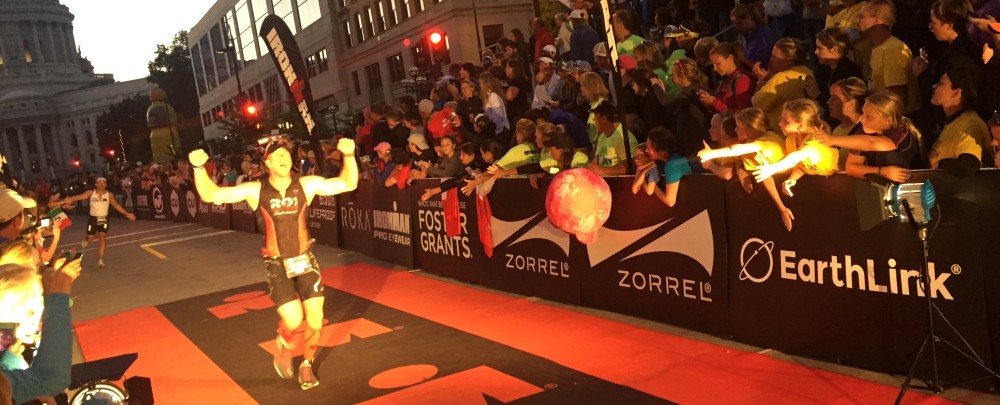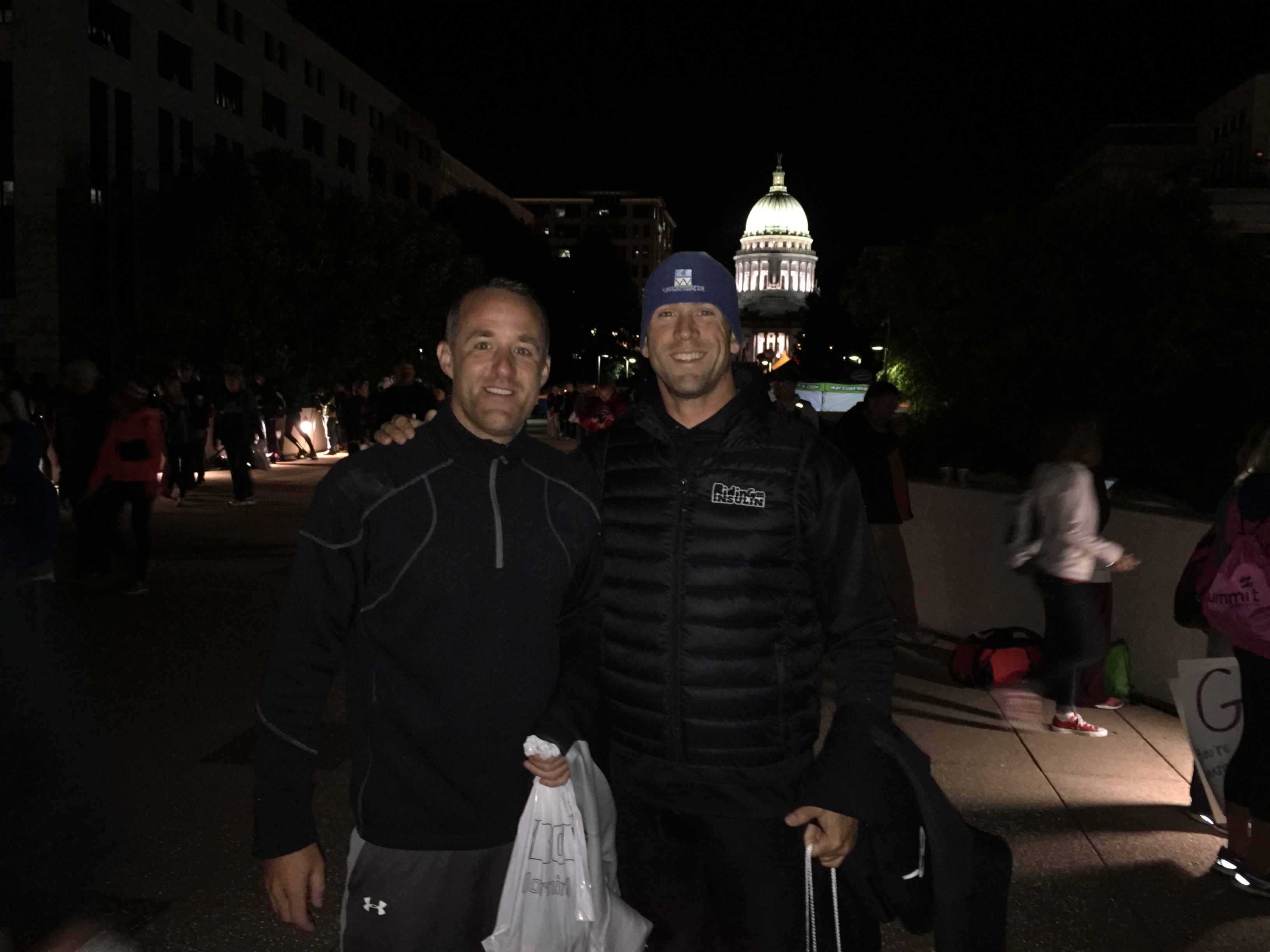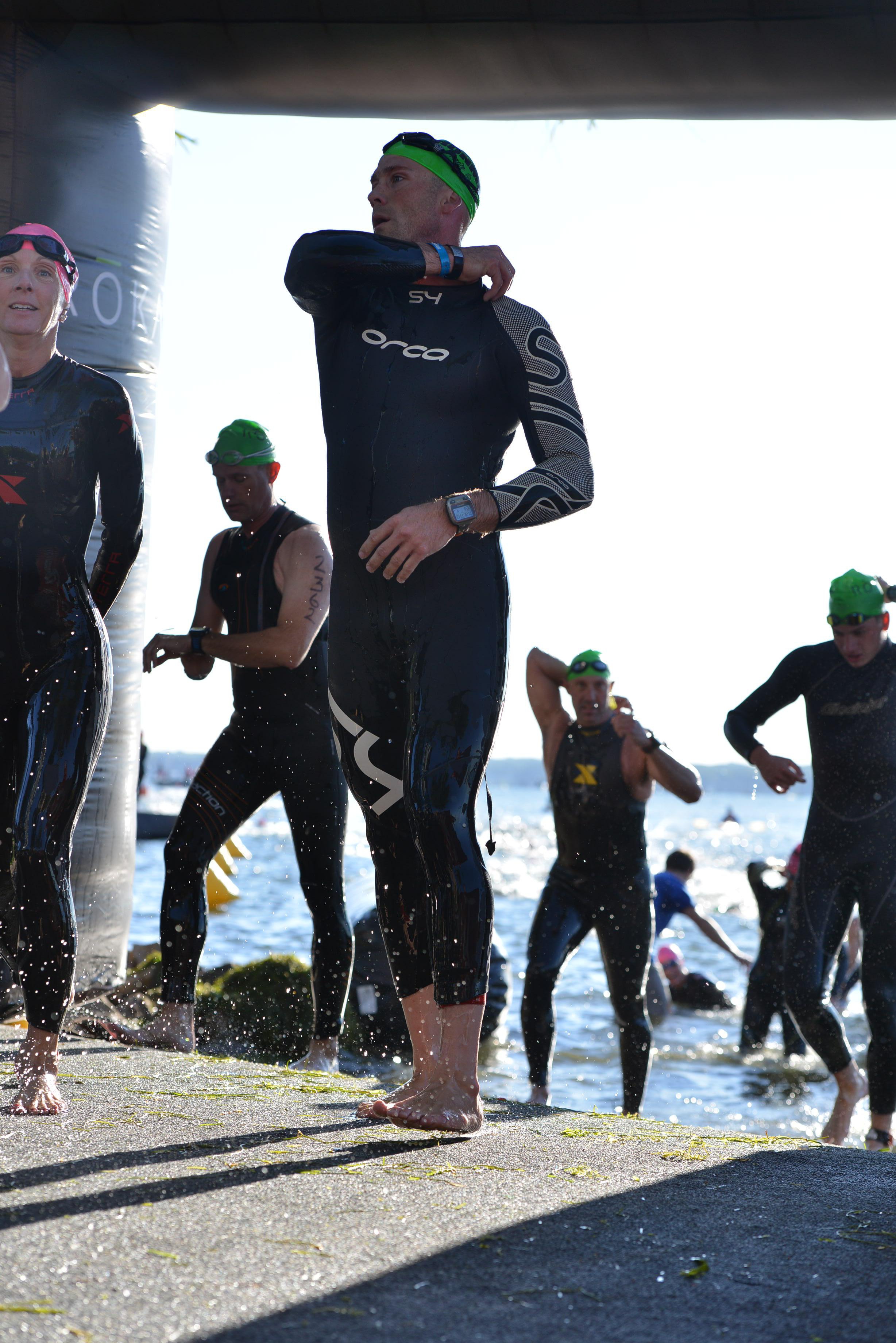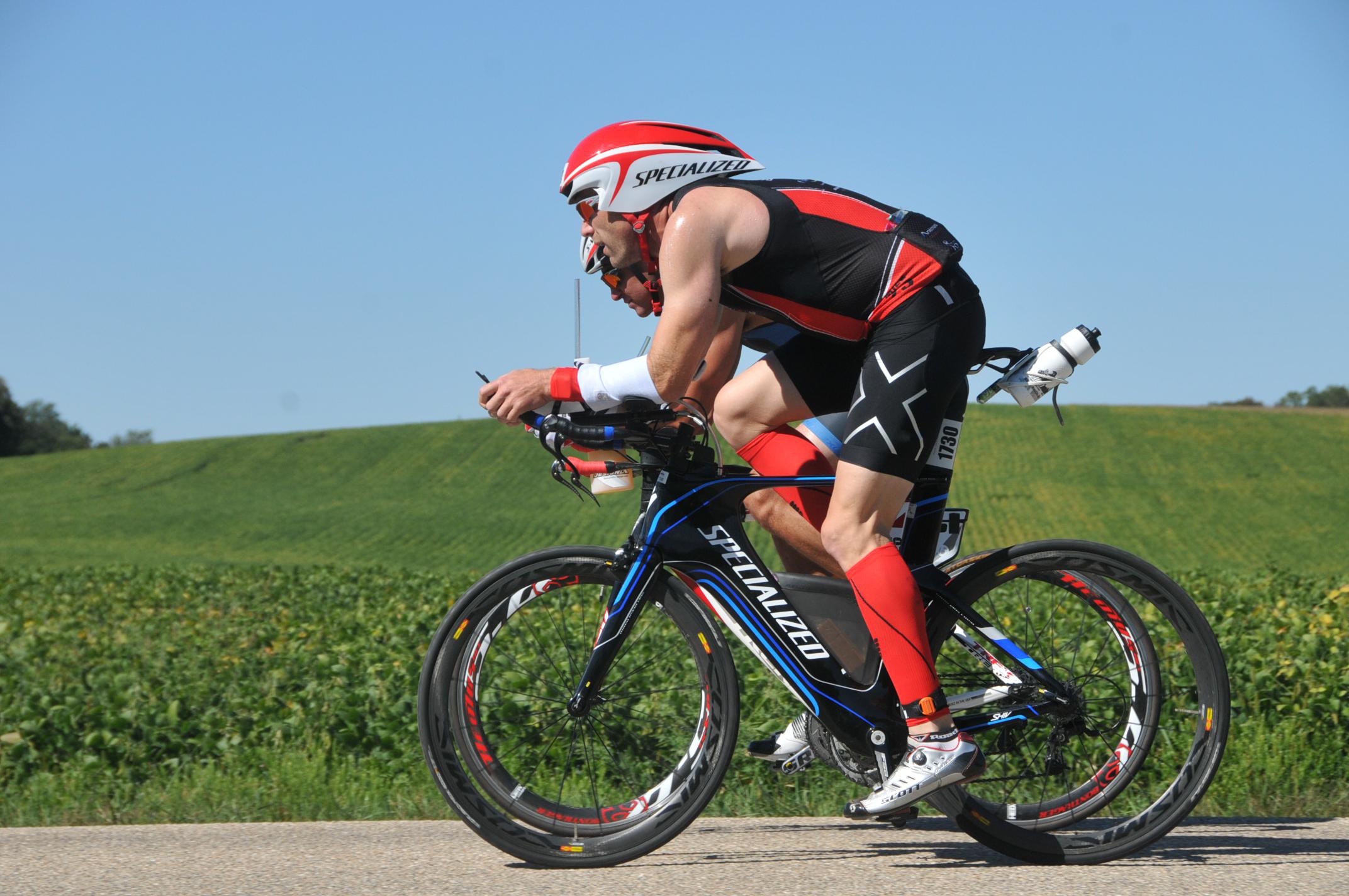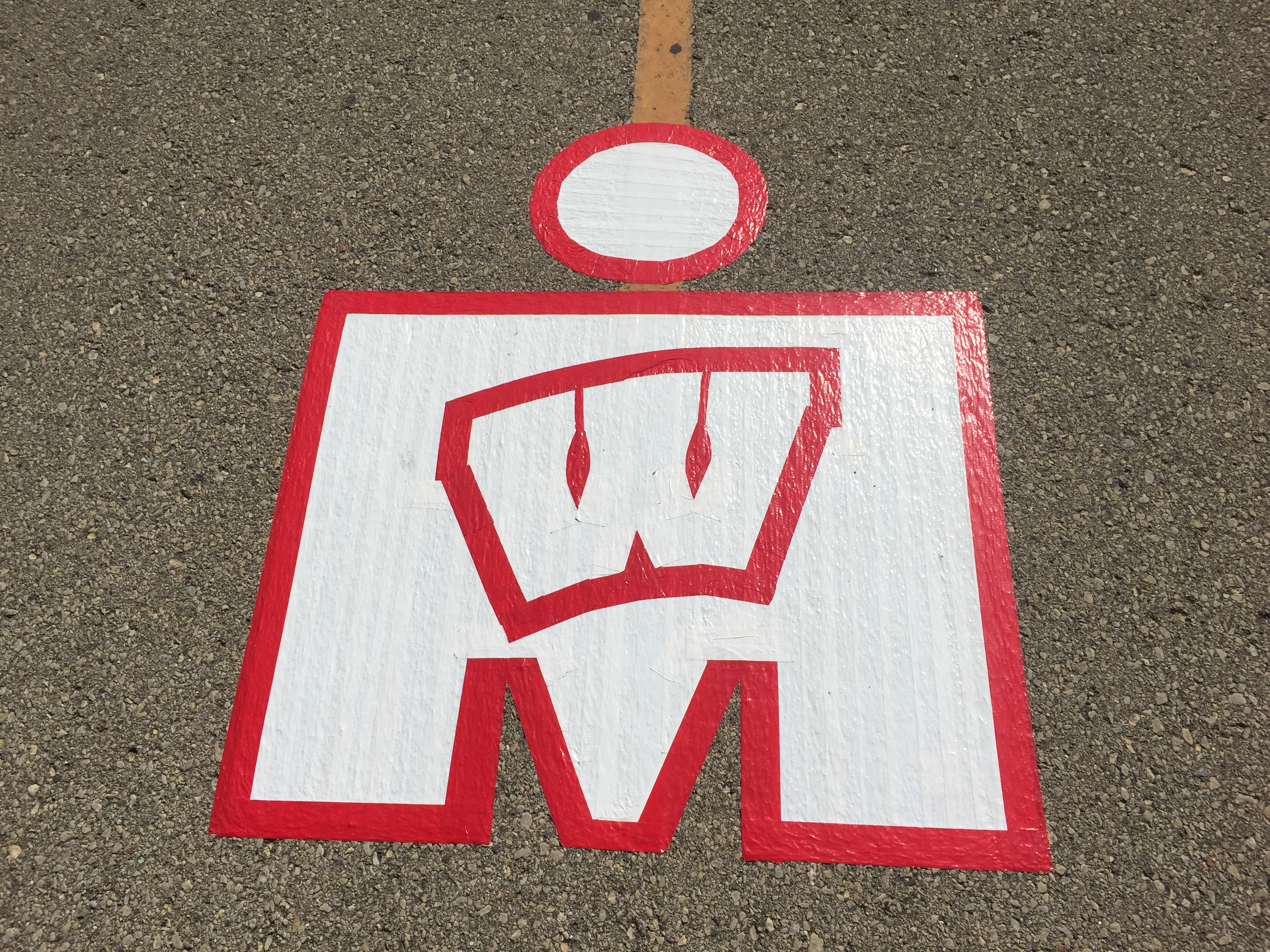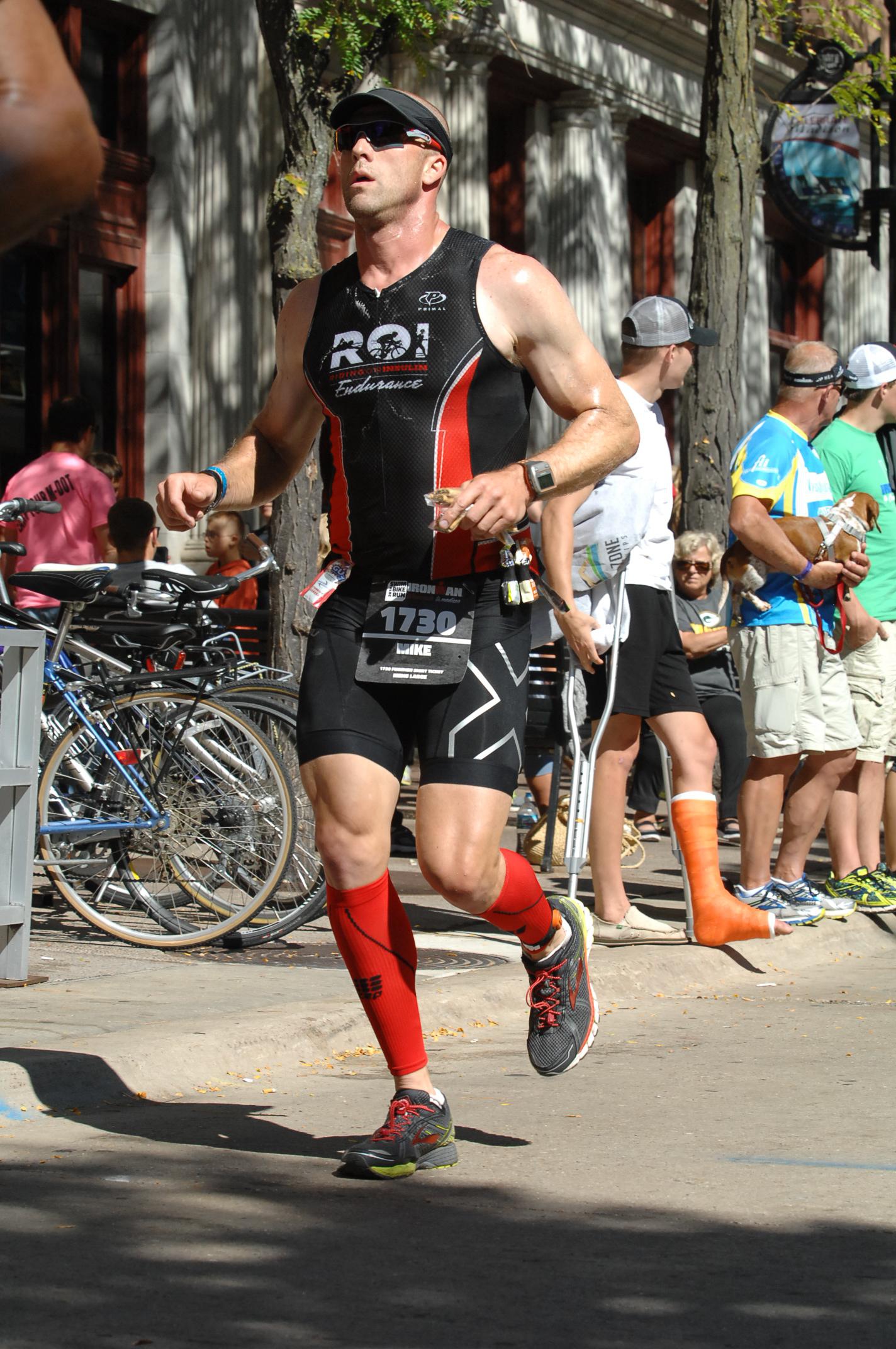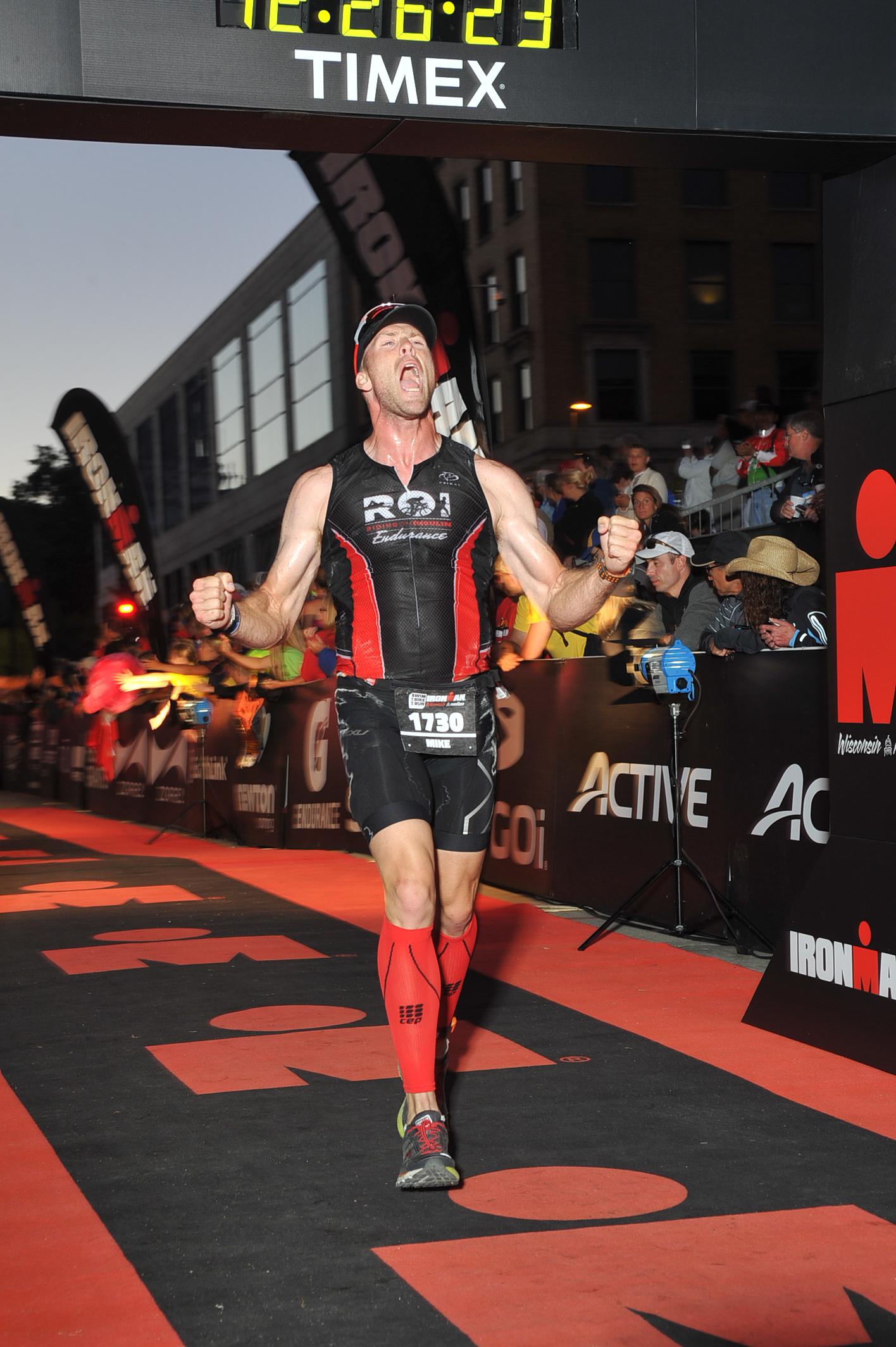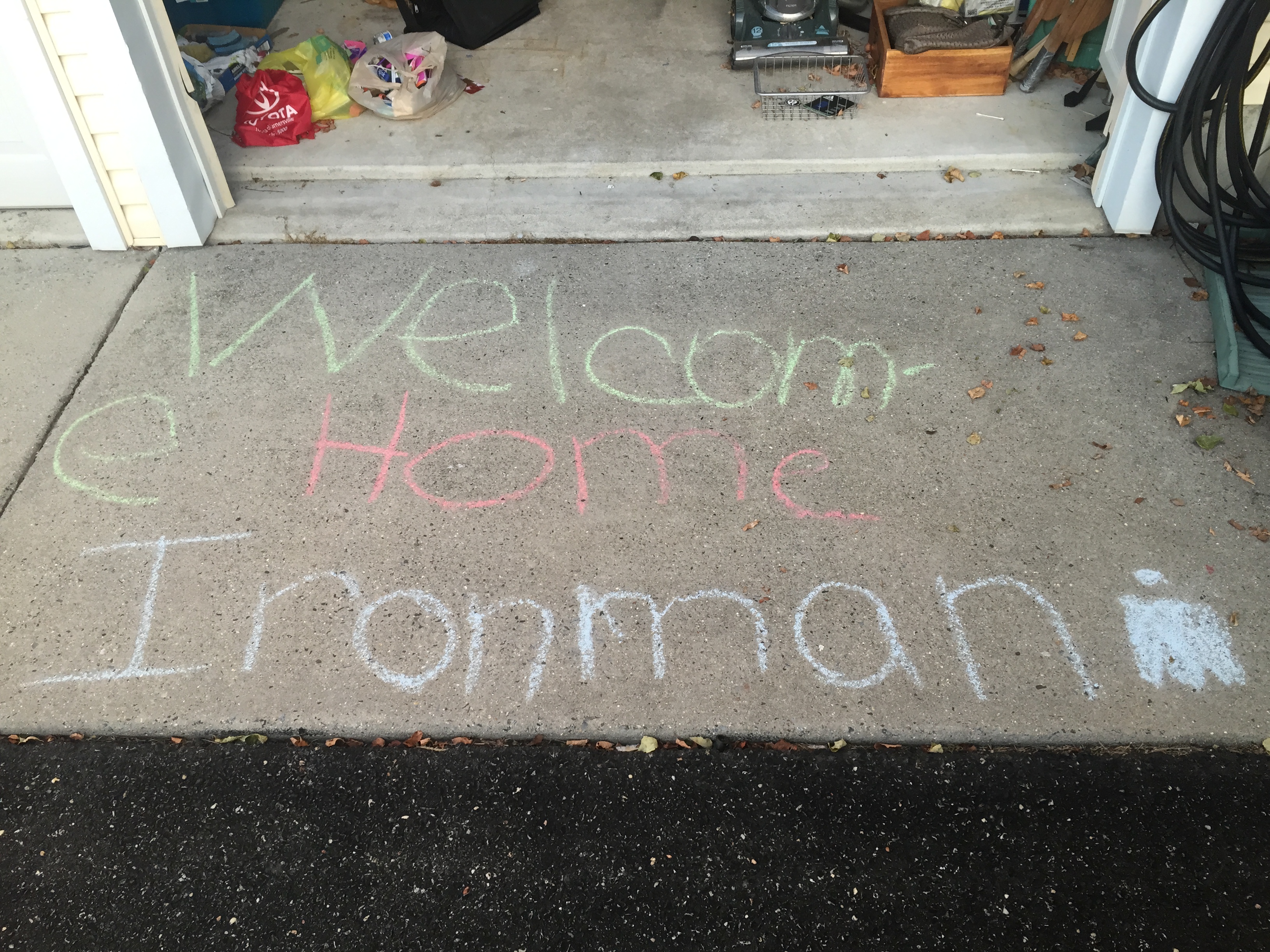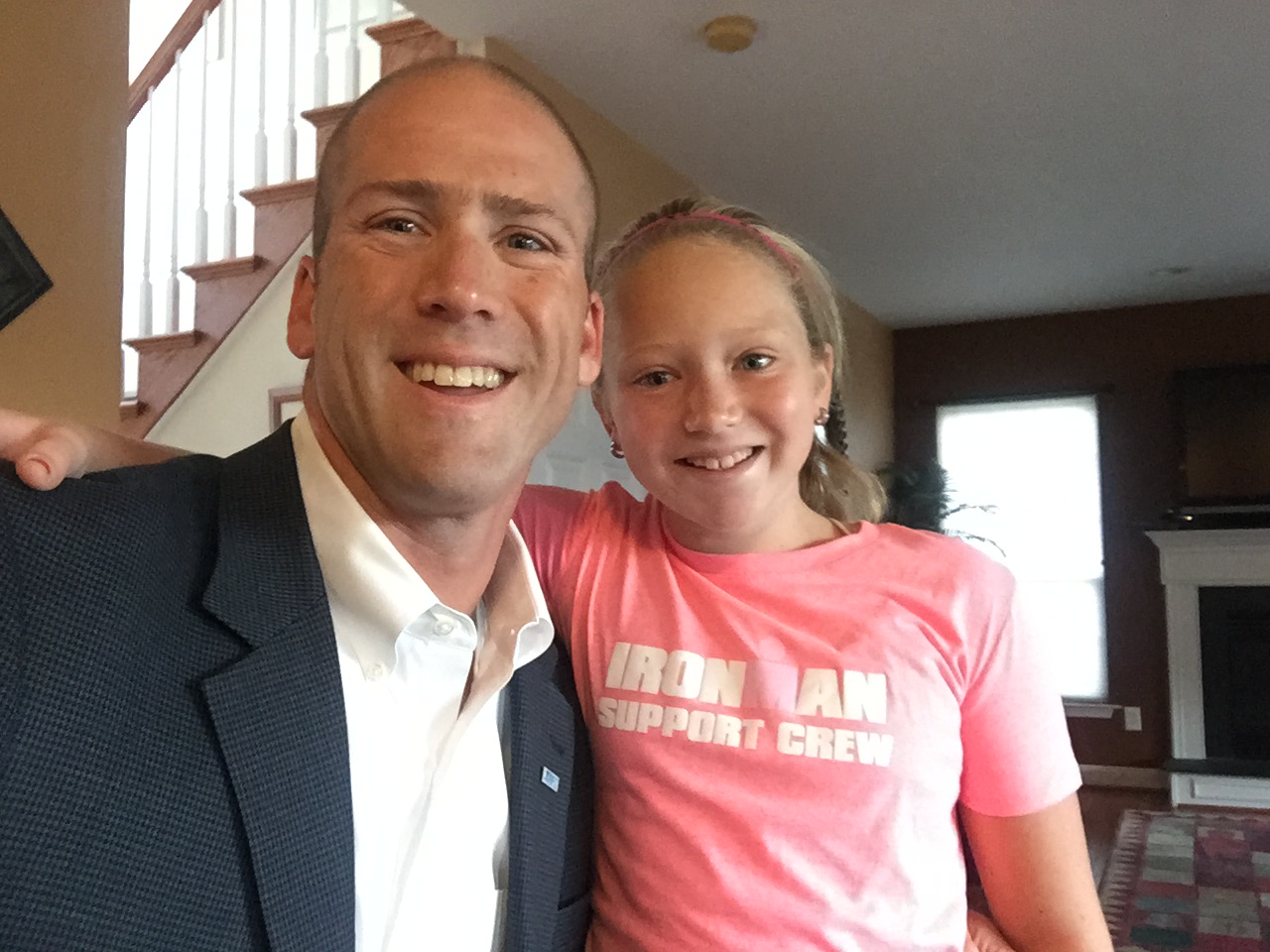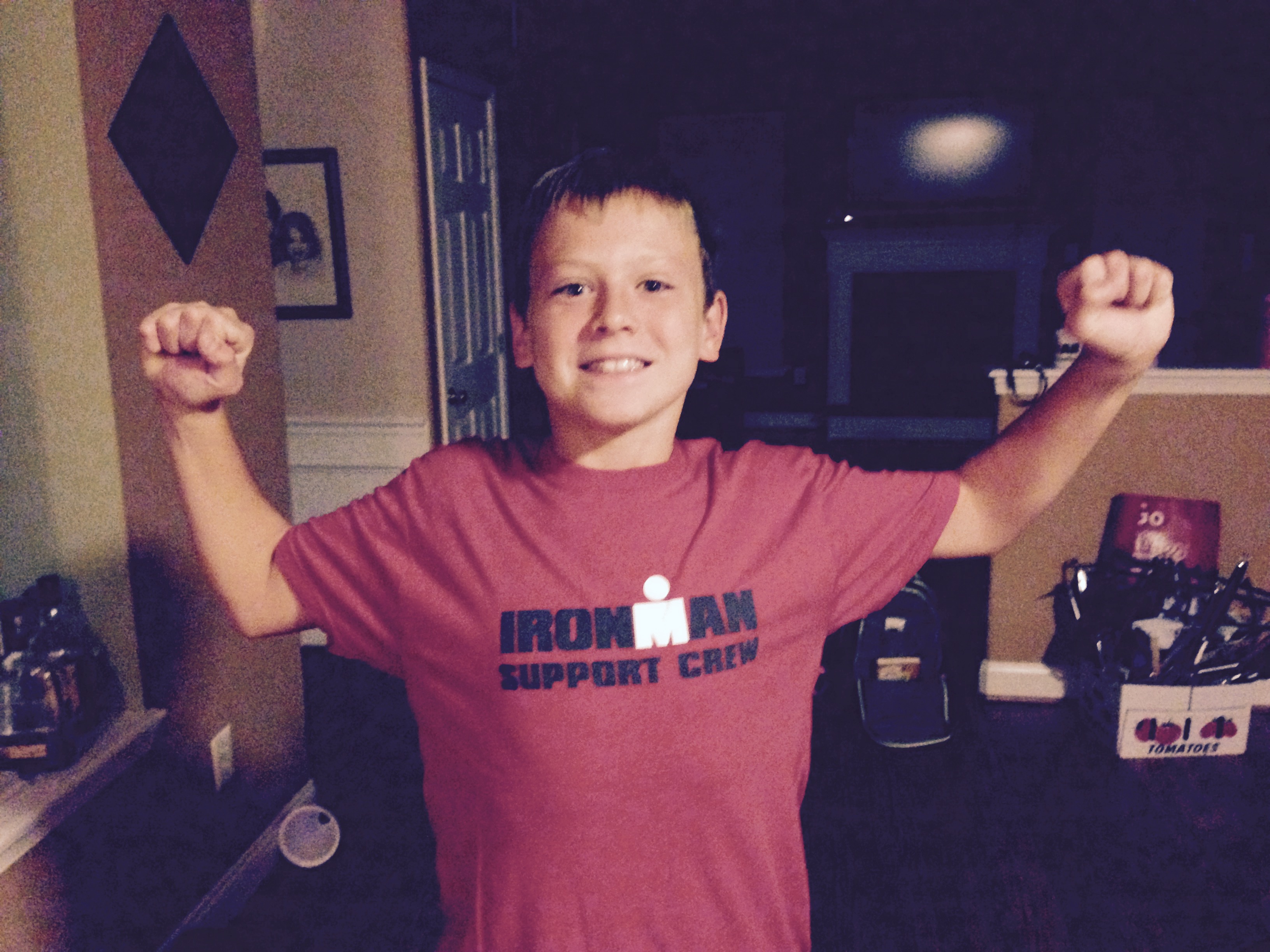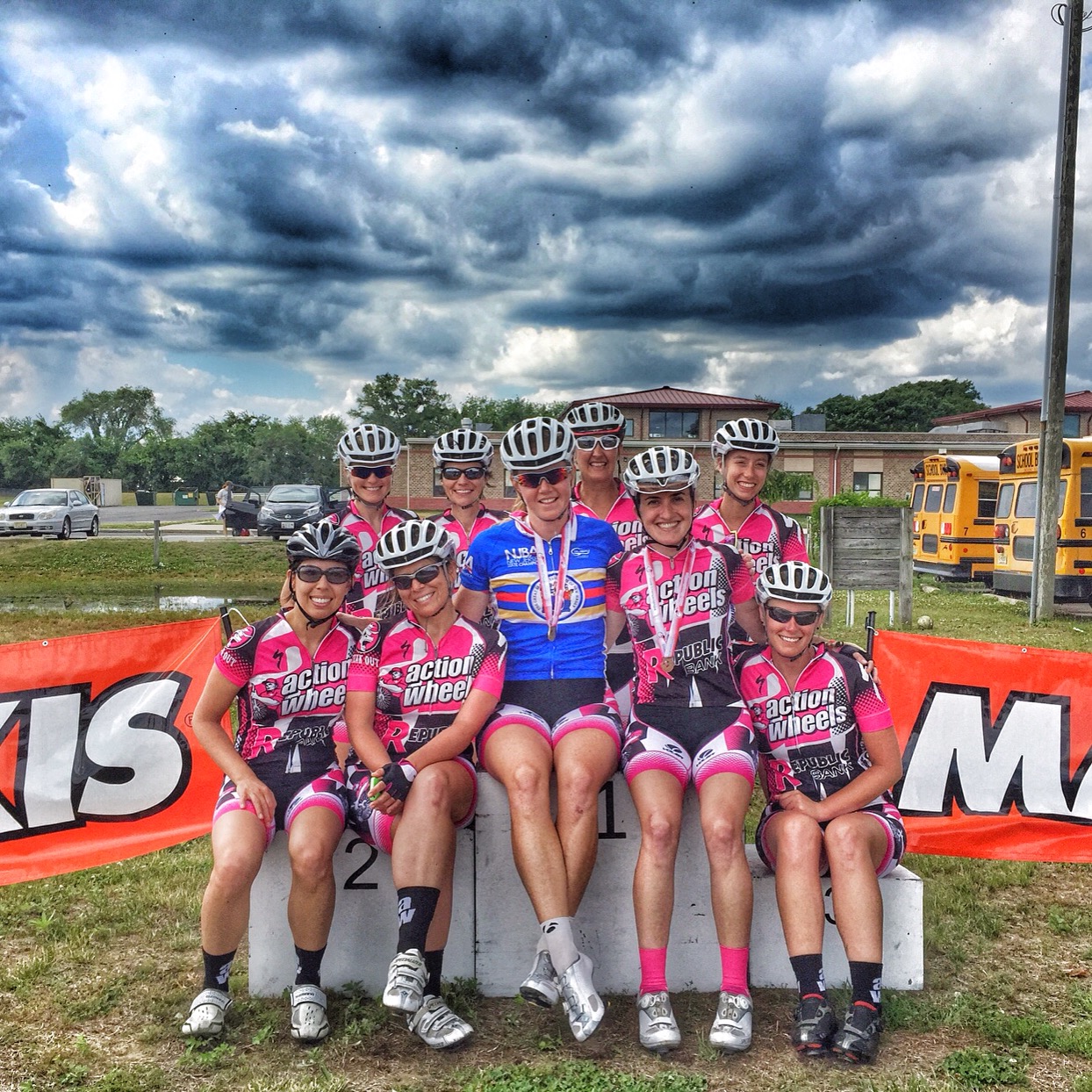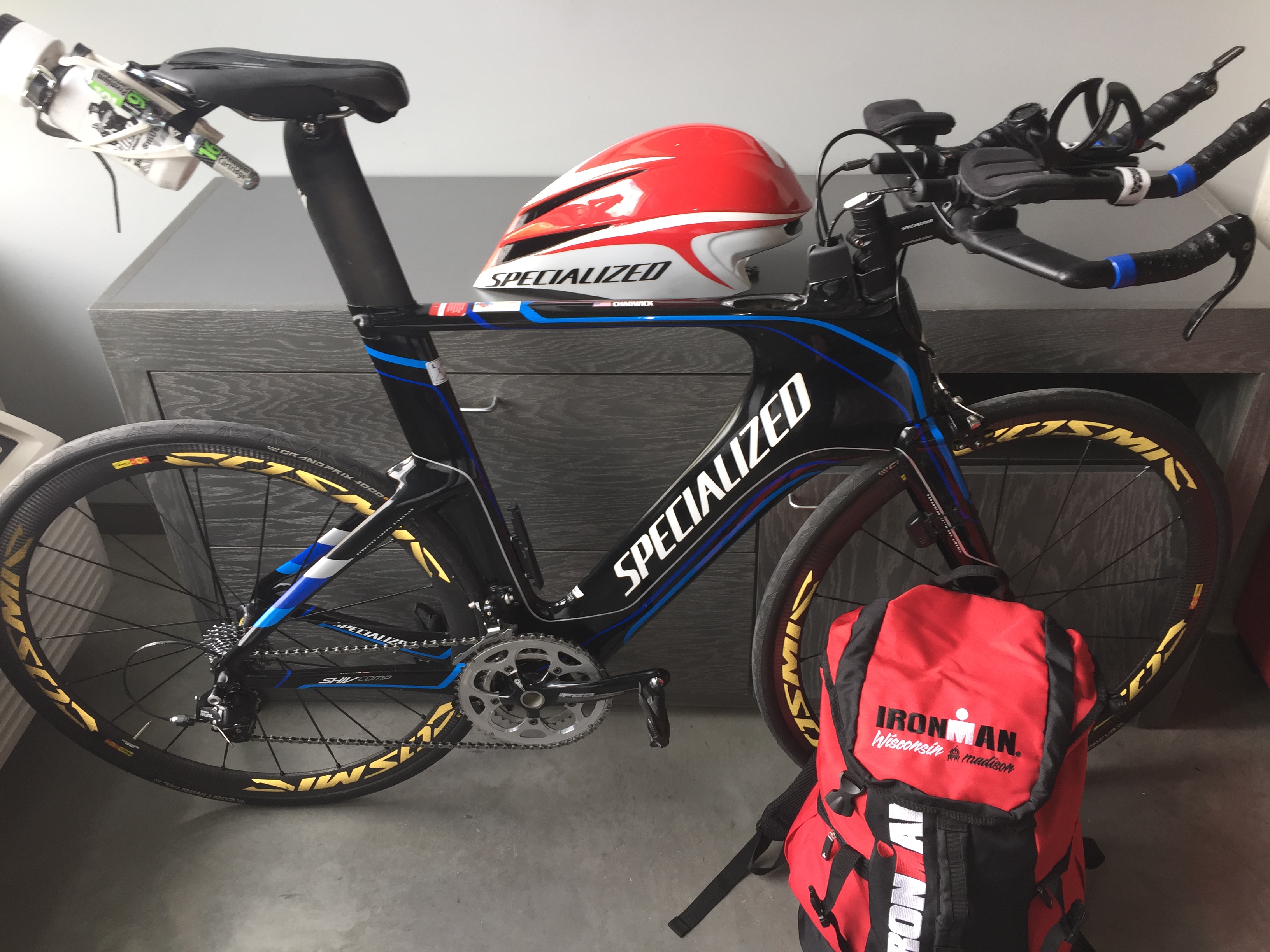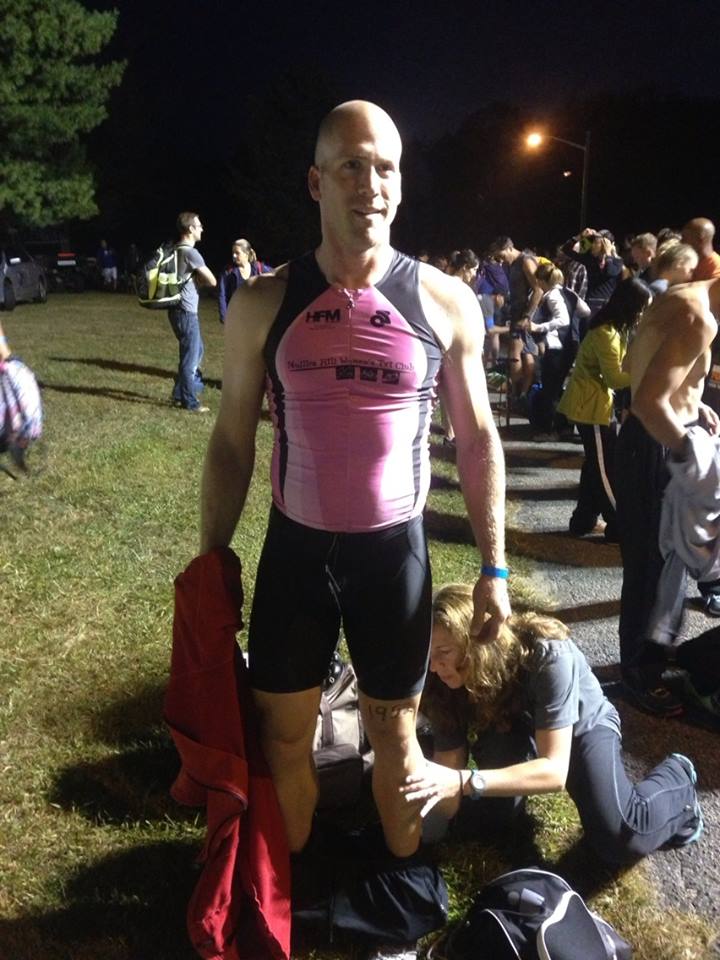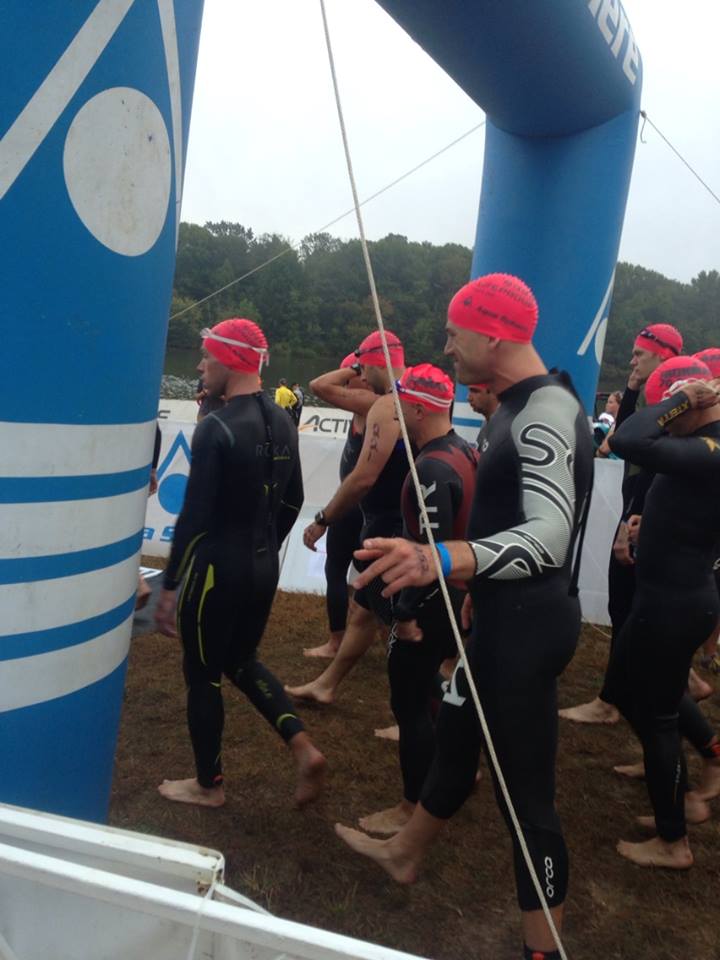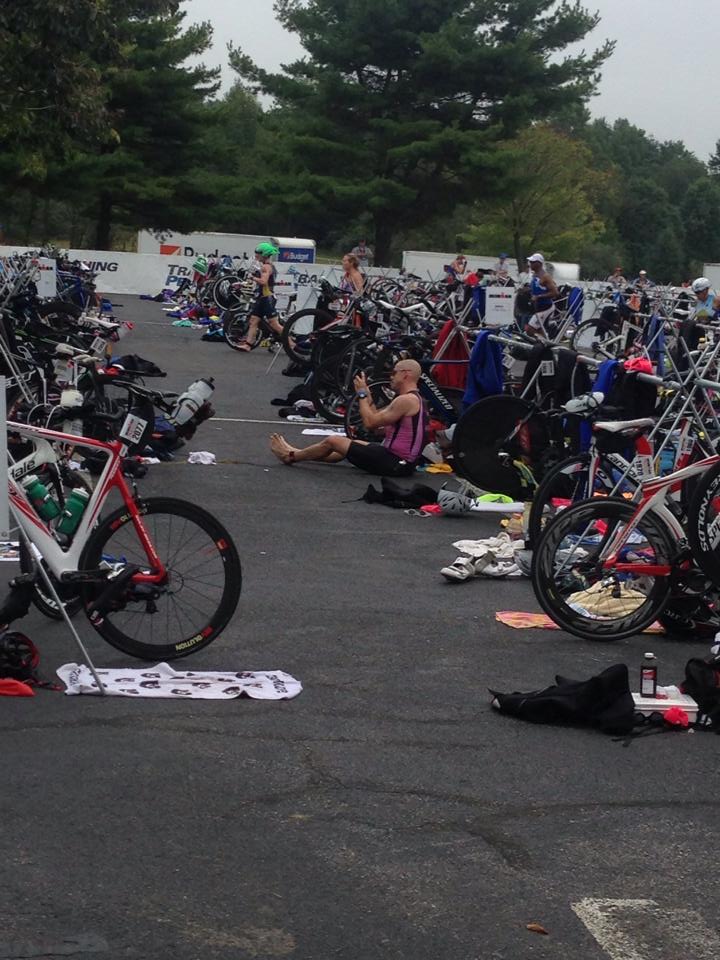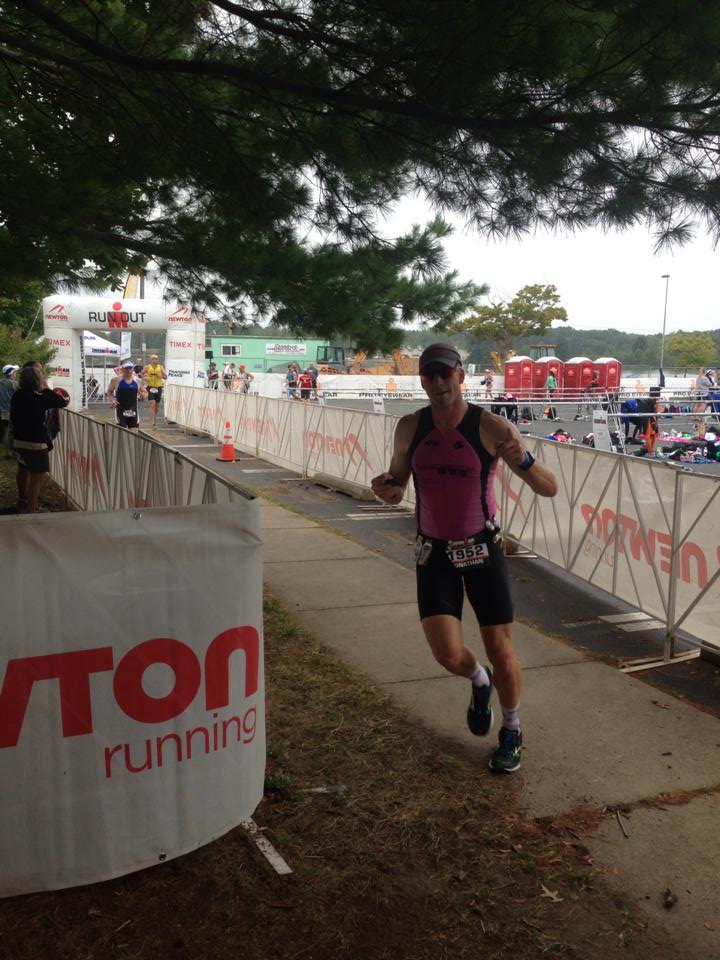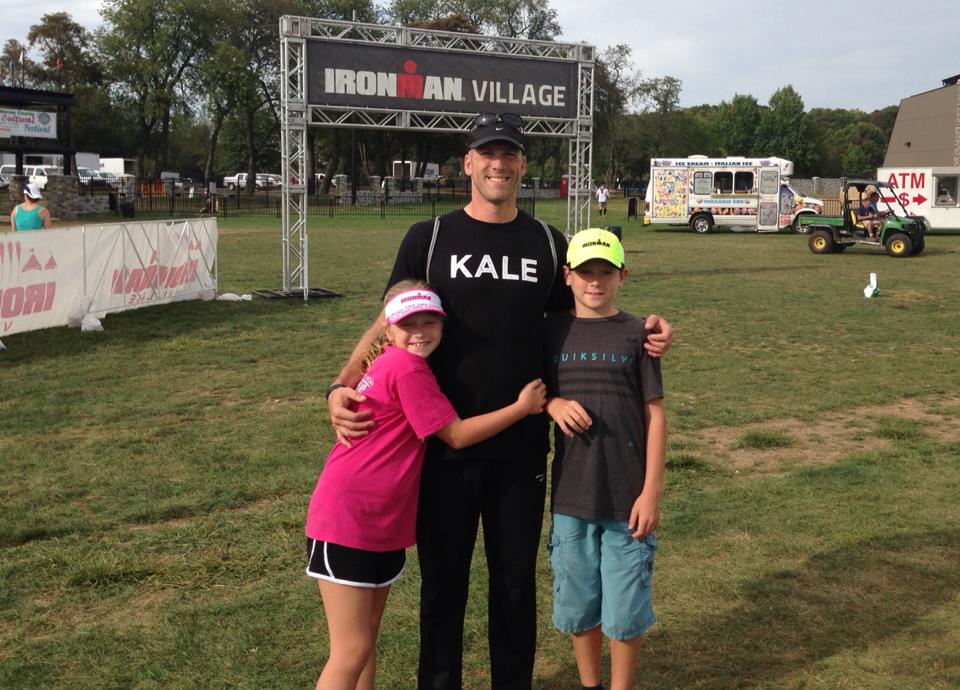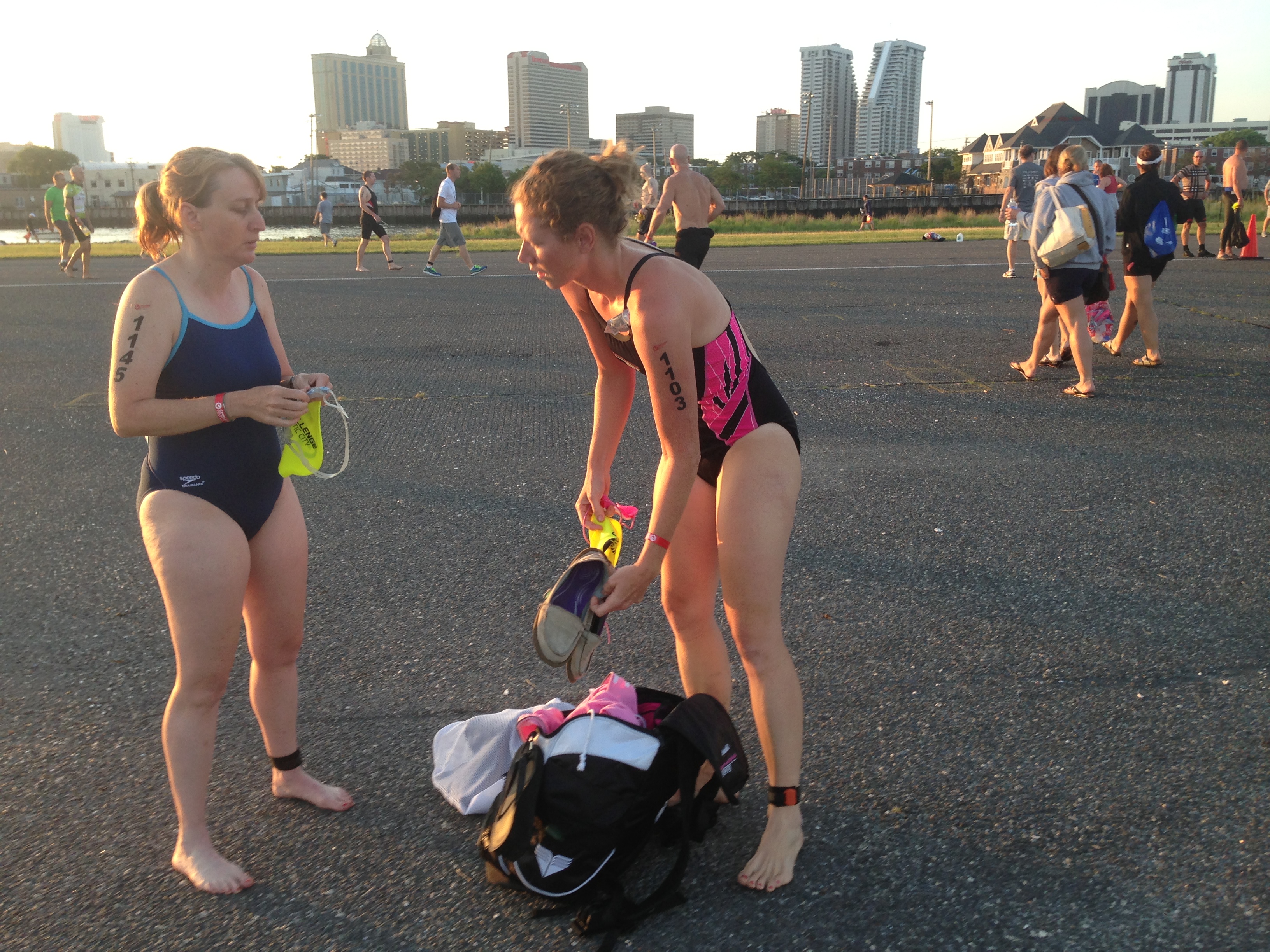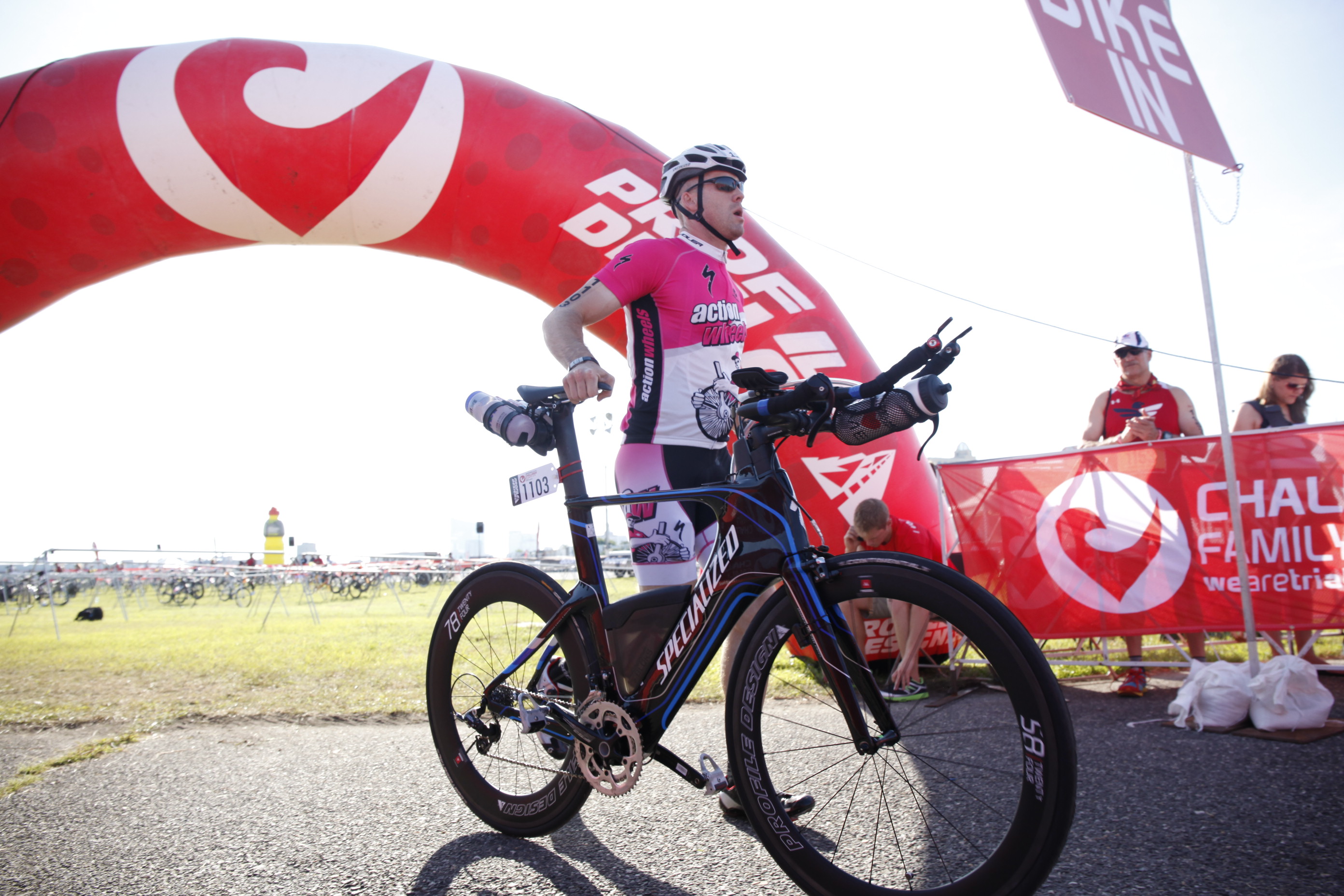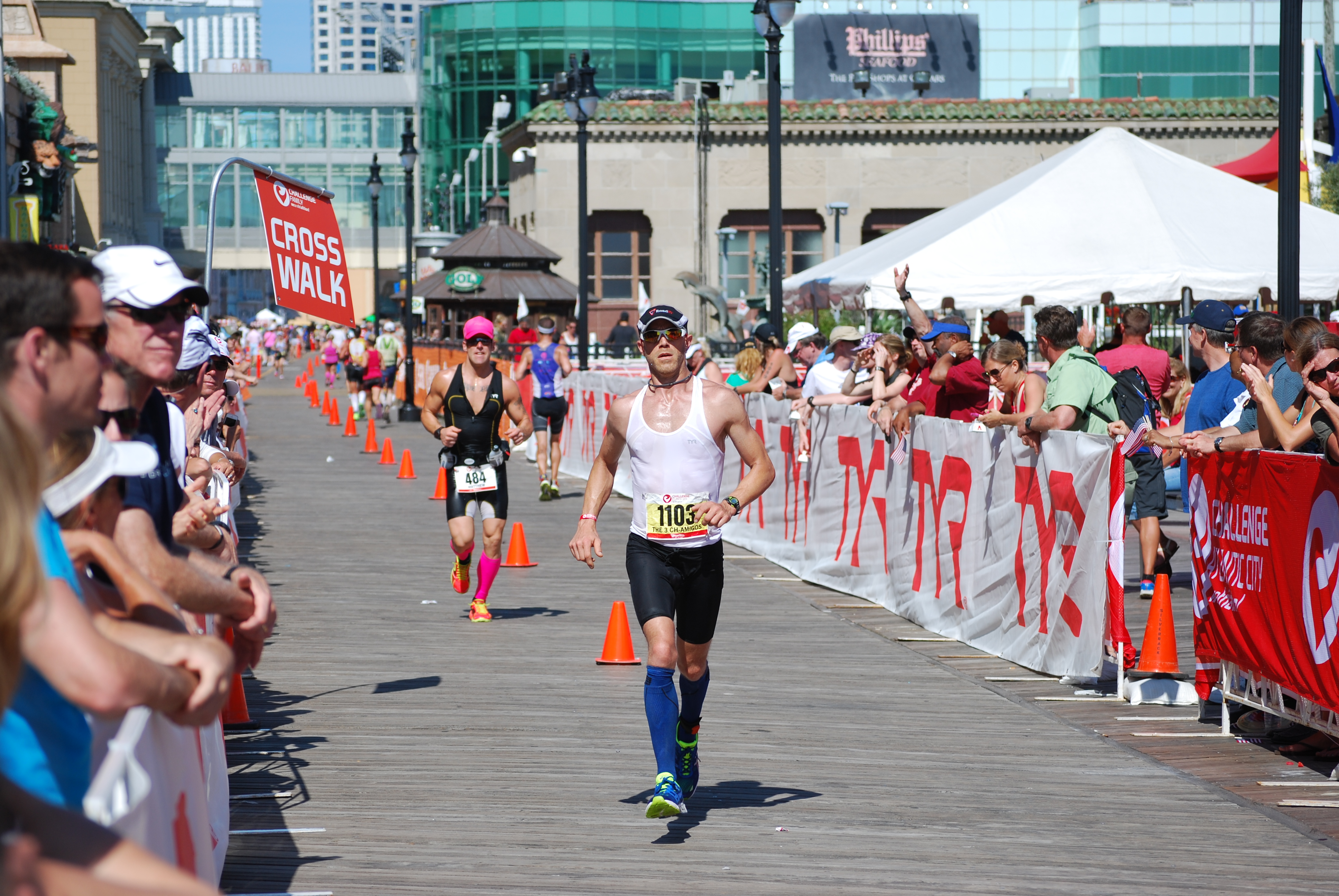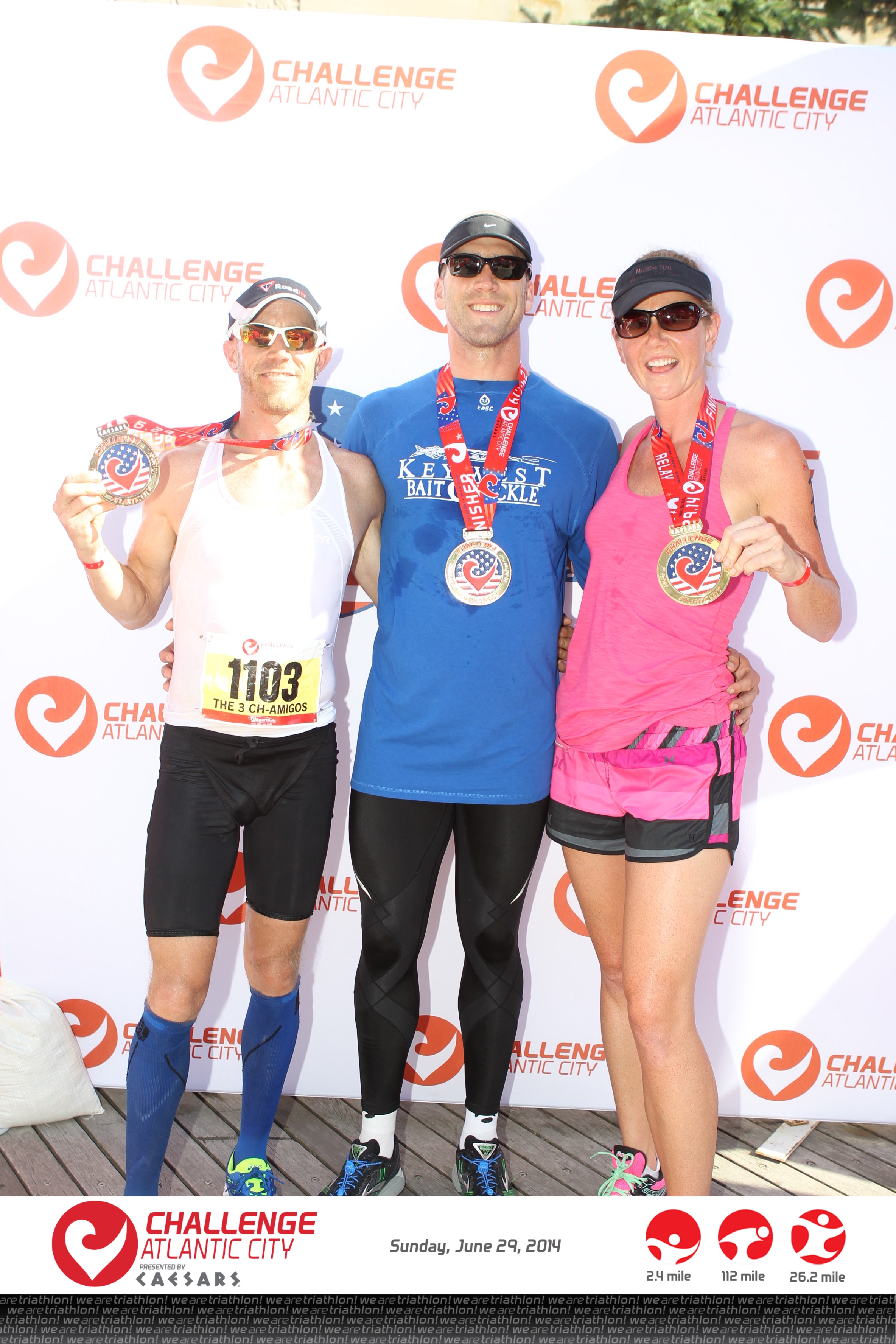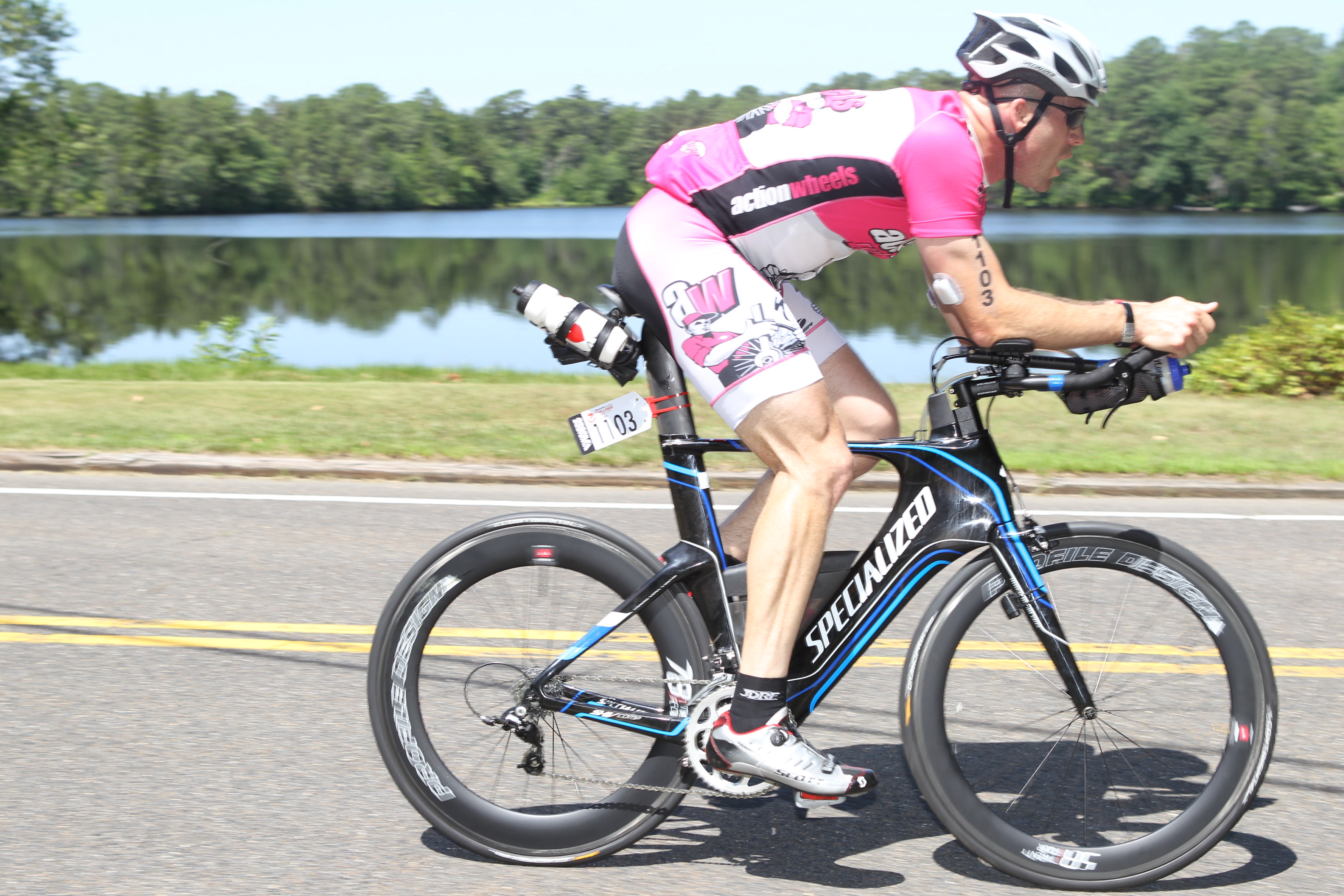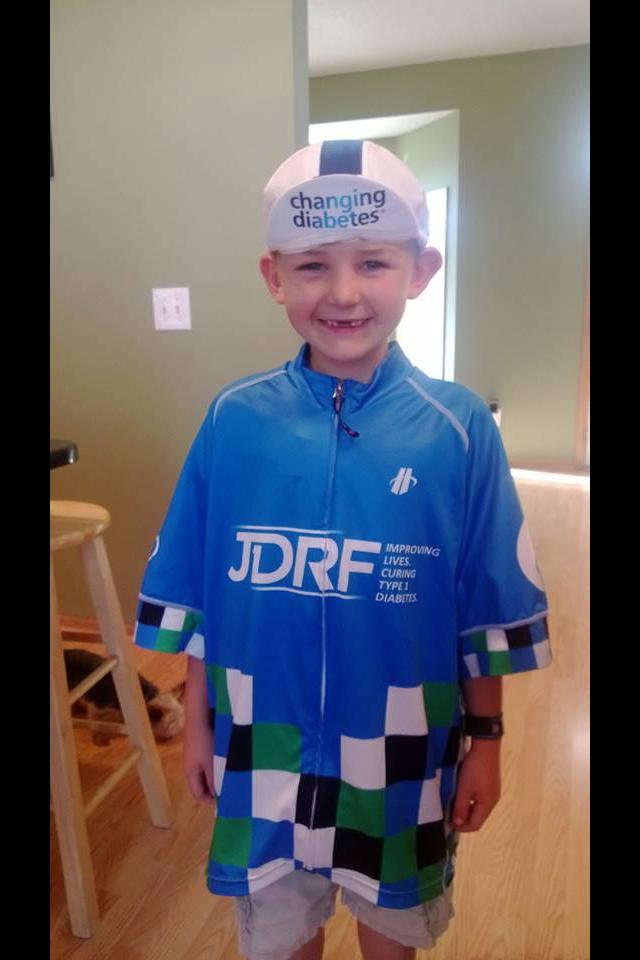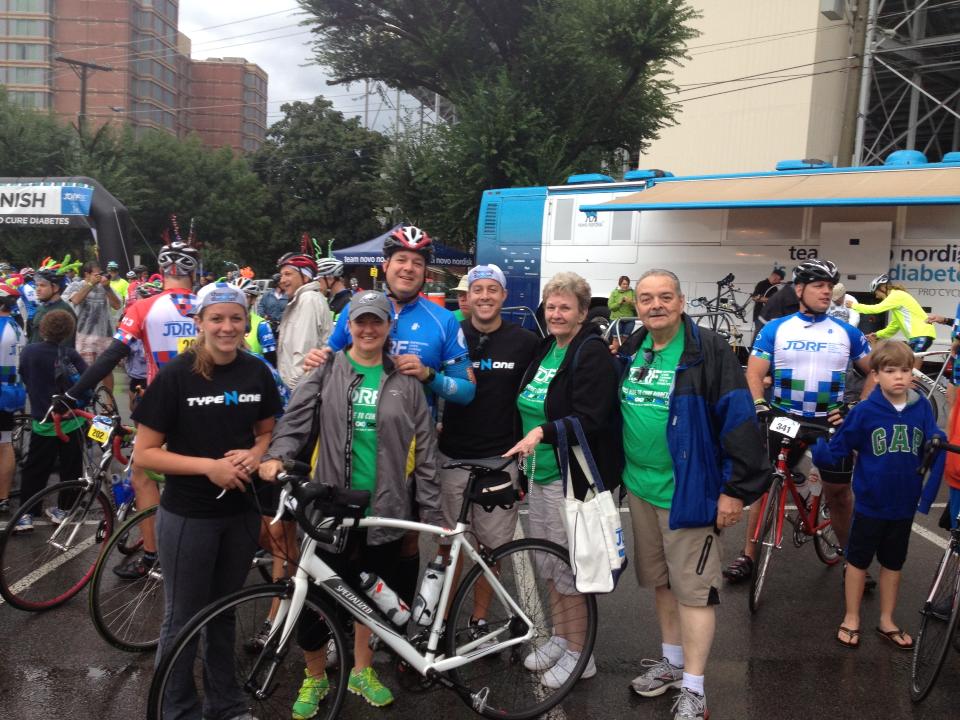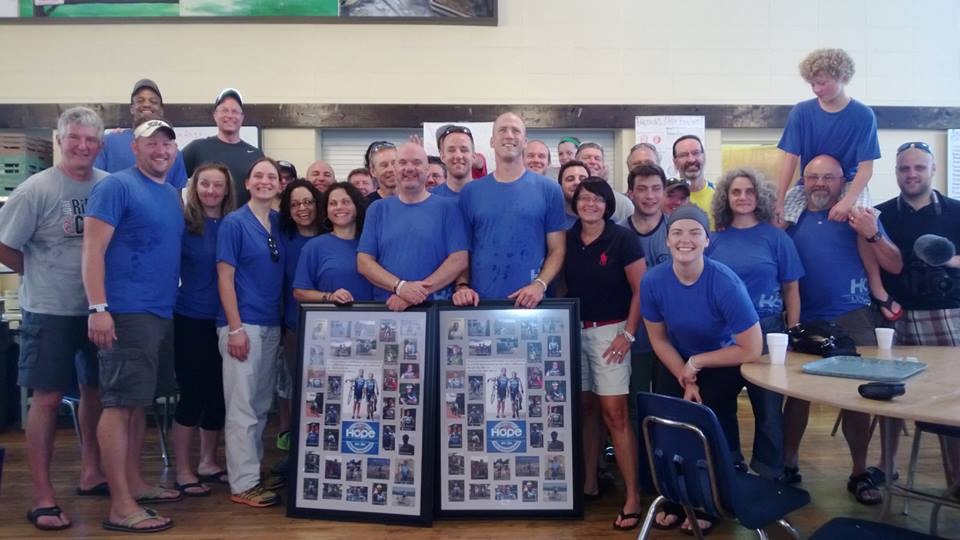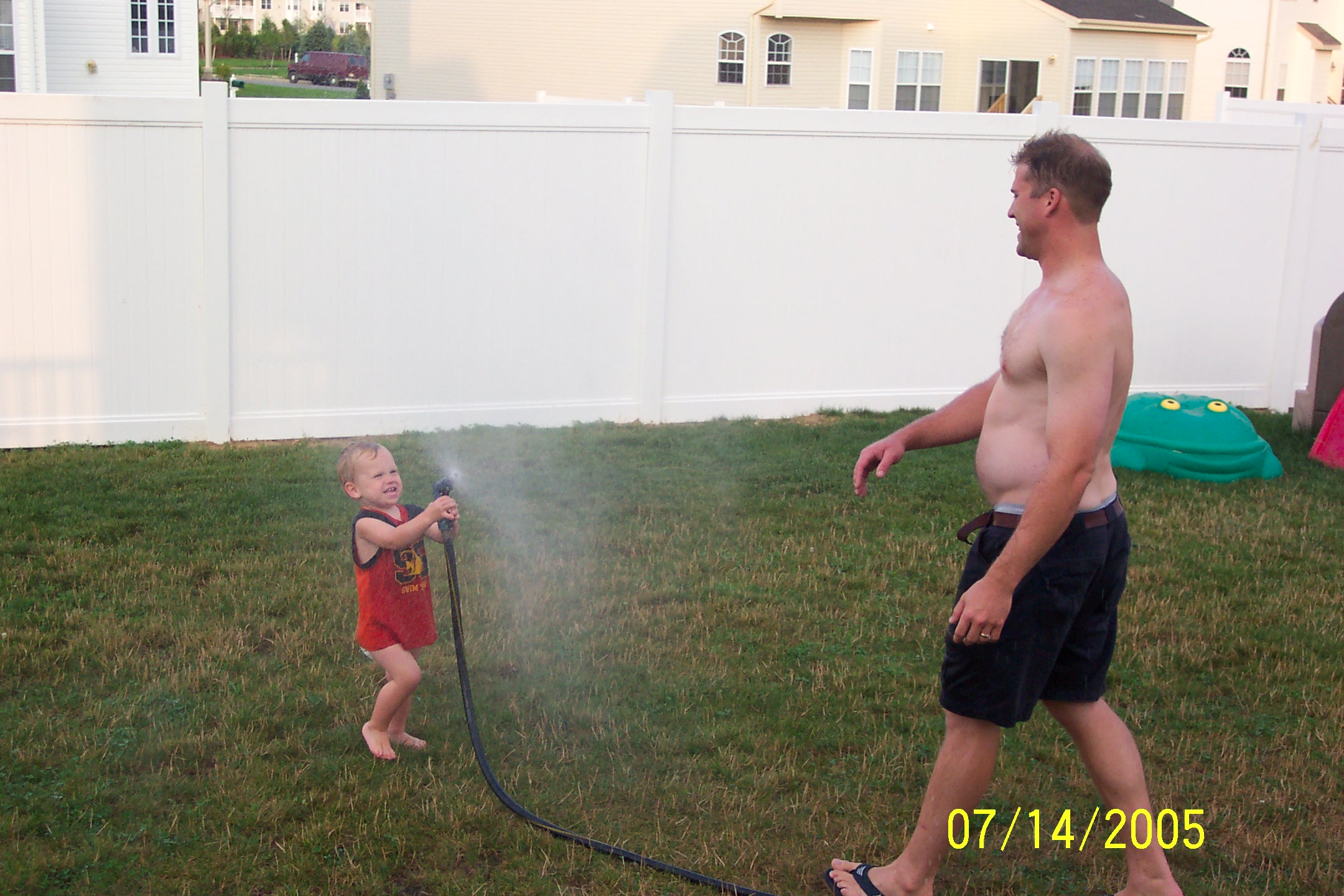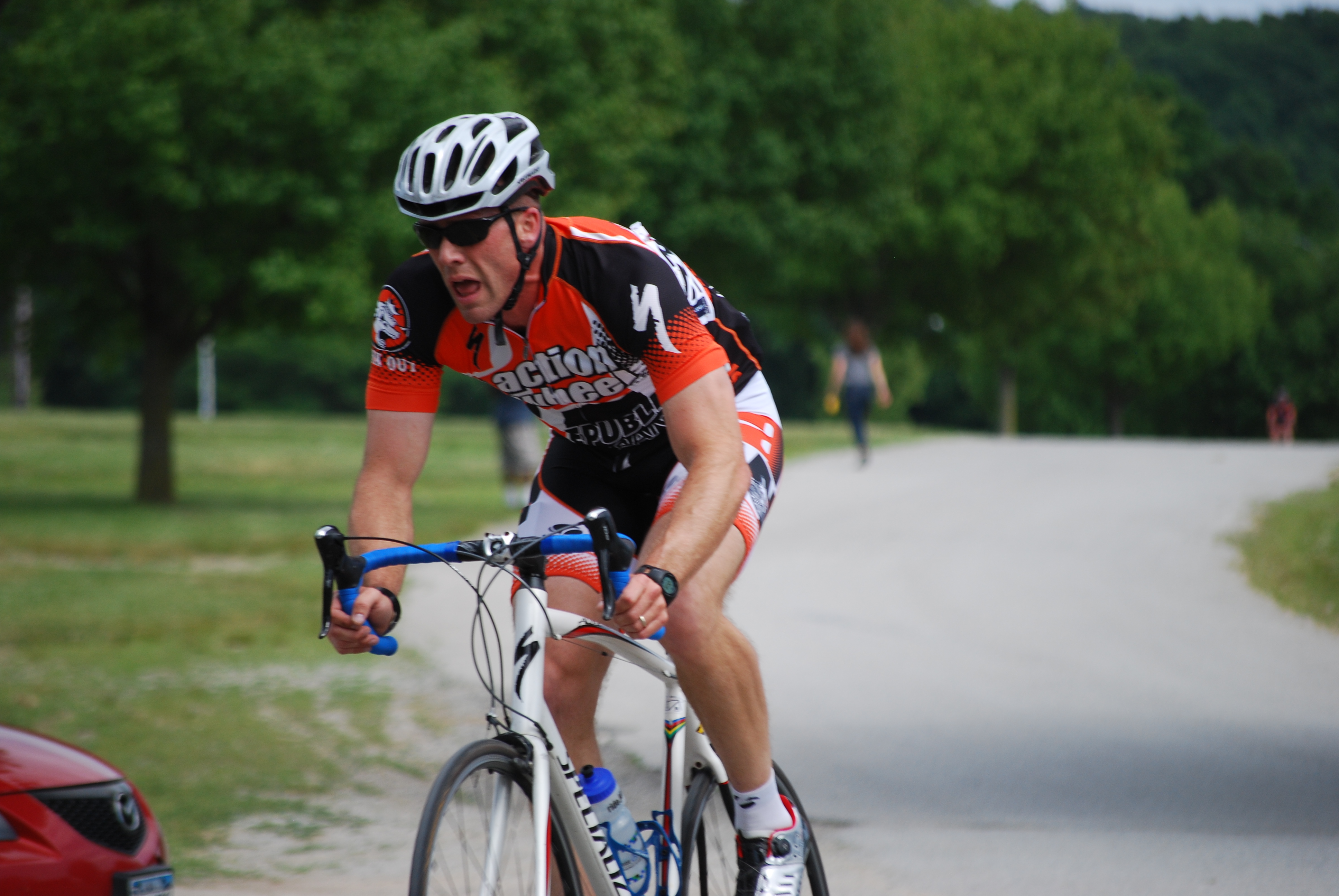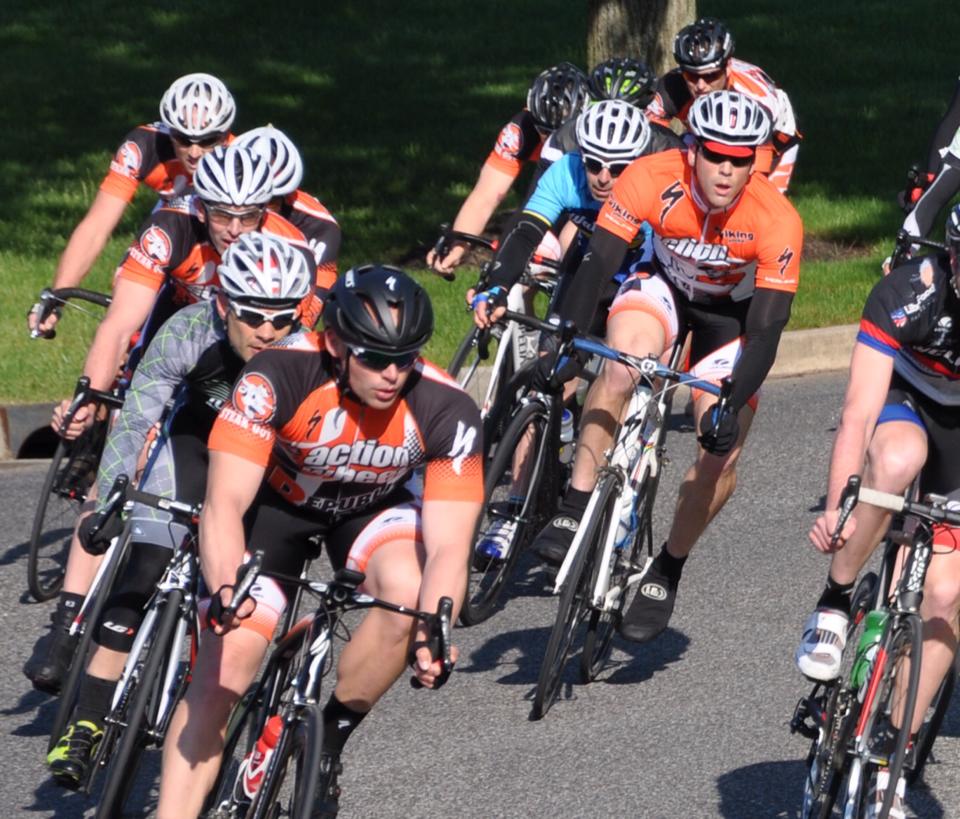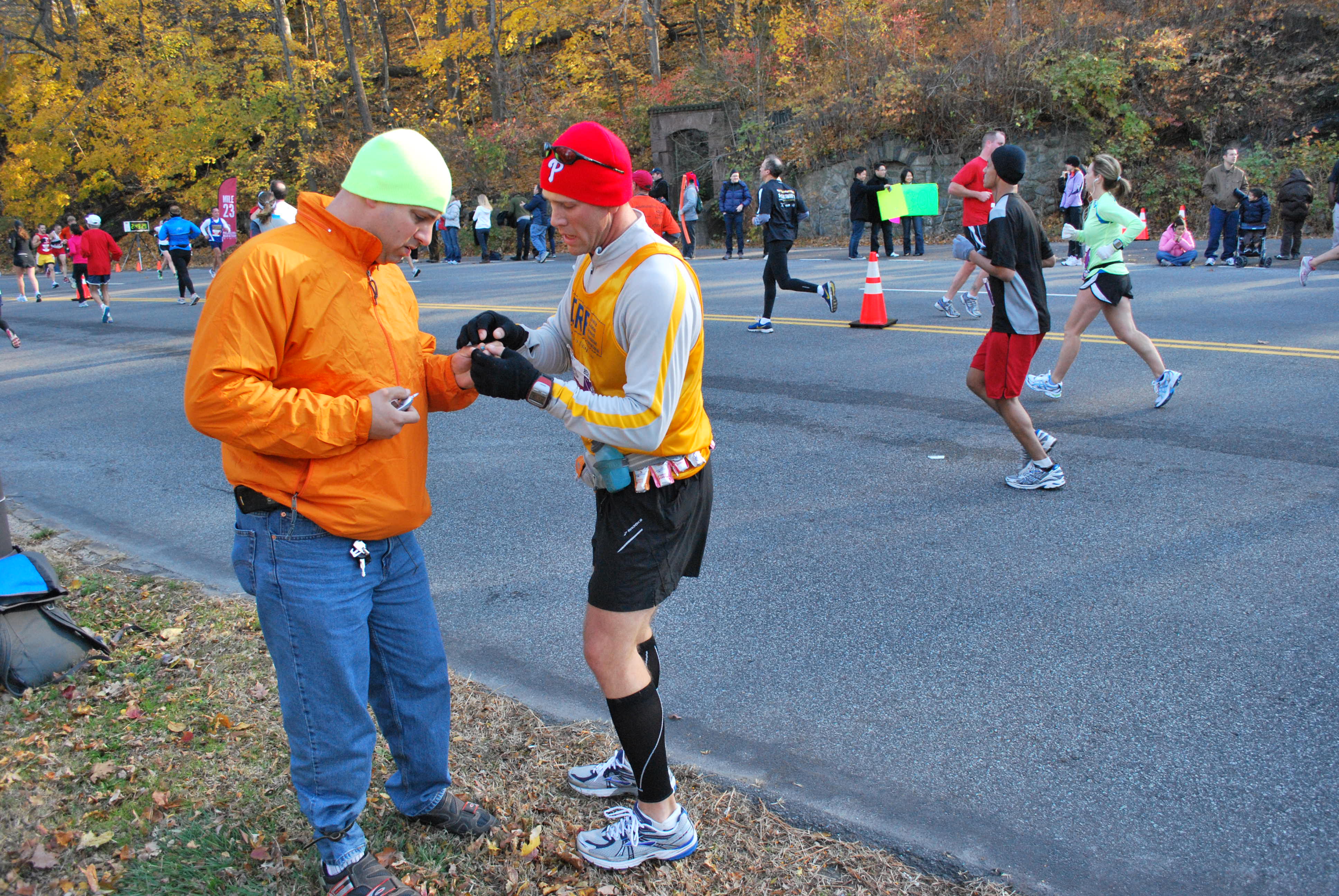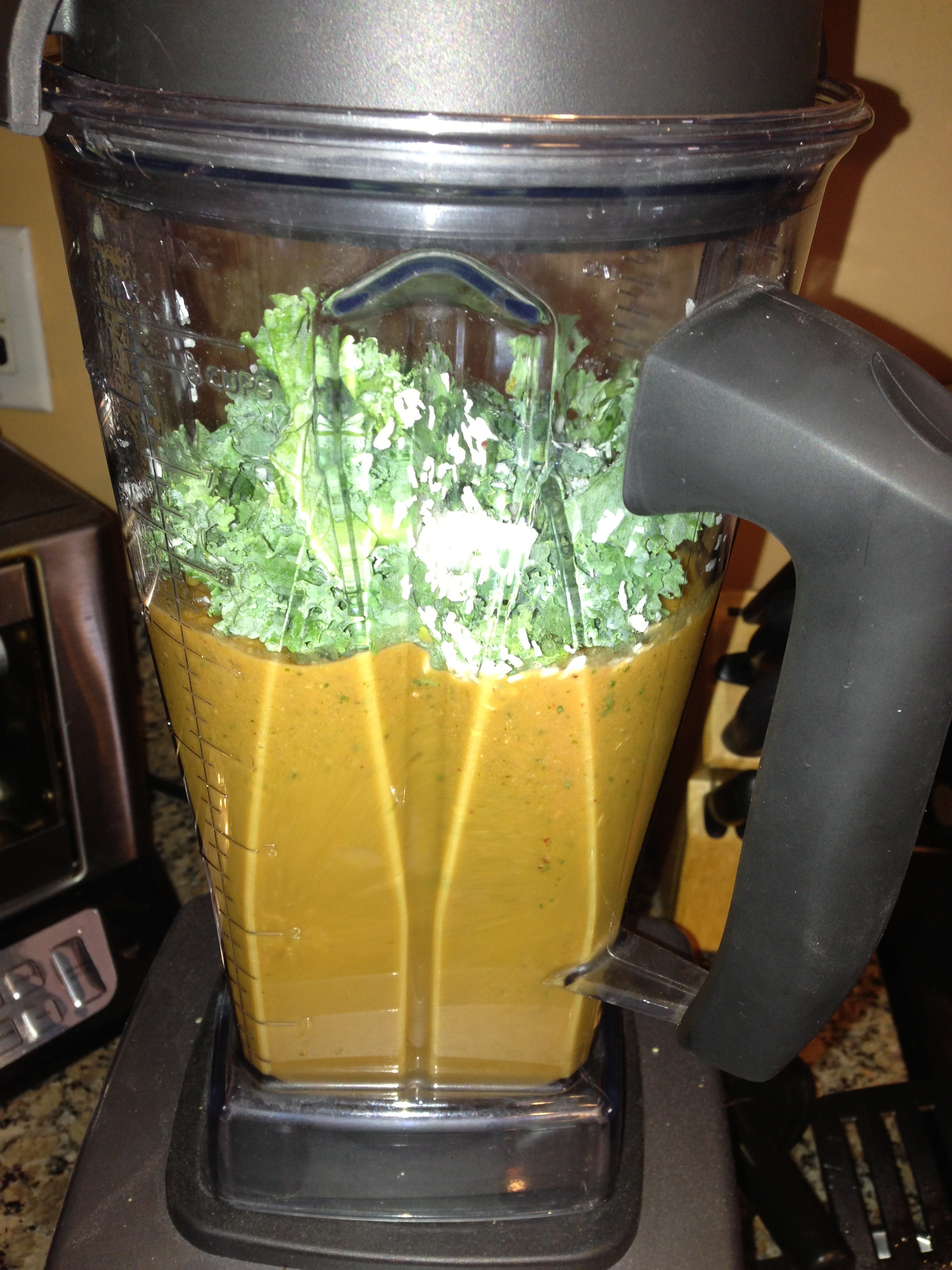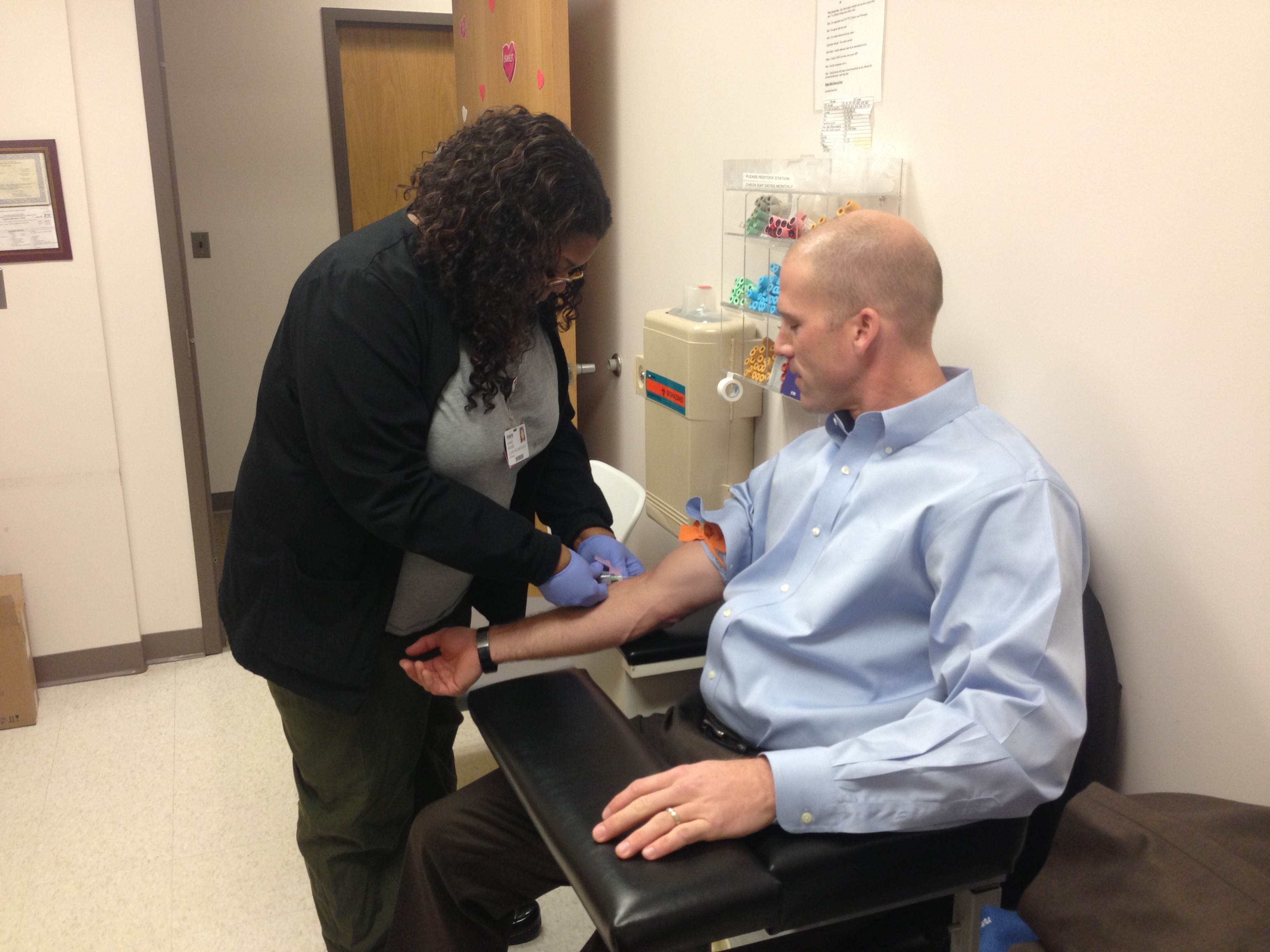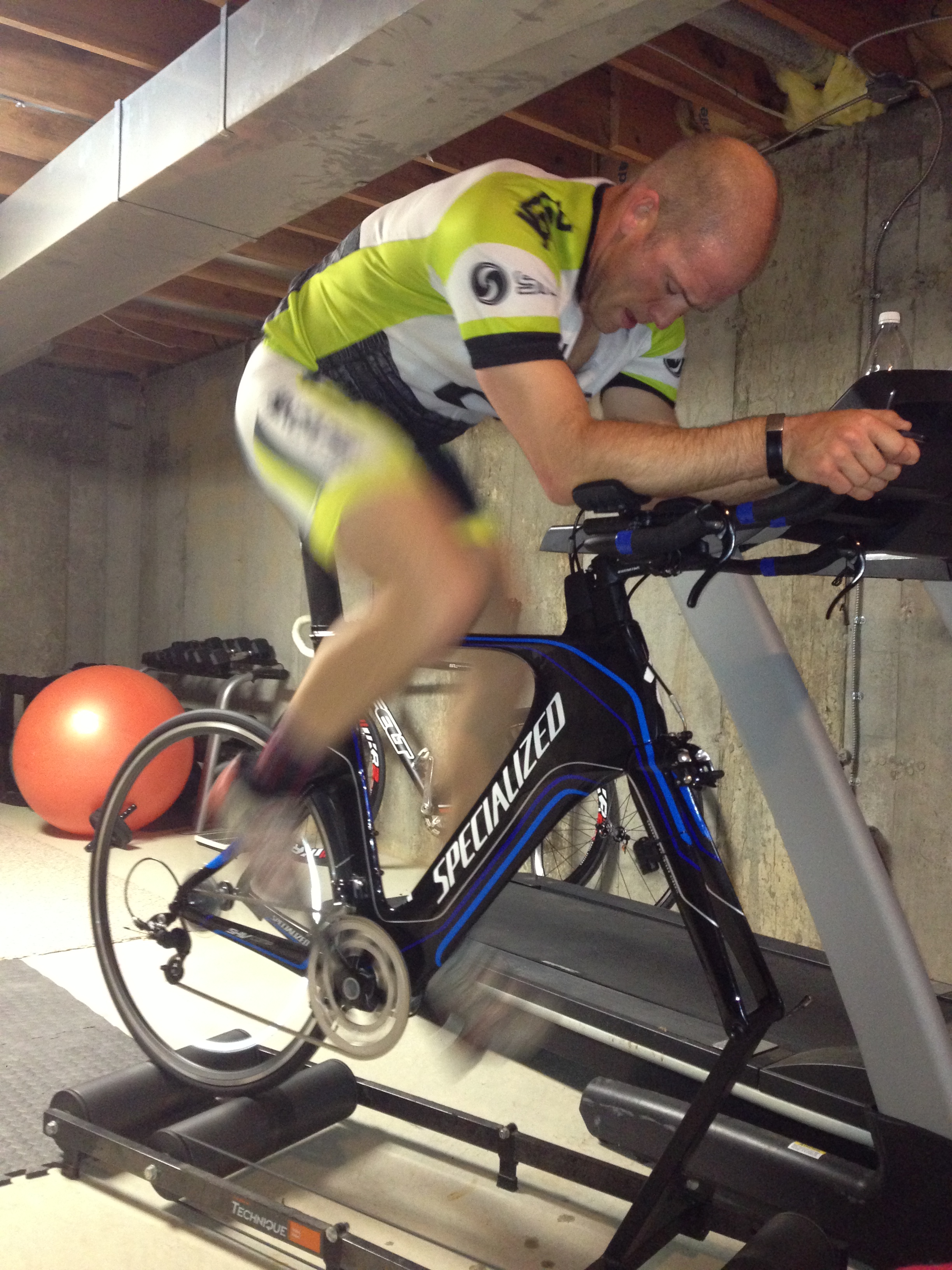Those are words I never believed I would hear, until I realized how important it was to my kids.

Thrown into the water with absolute chaos, I had to find my way while getting kicked and punched. After a while, I was able to get my rhythm and settle in, and then transition to the next stage…. Settling in, I was able to breathe and felt free. Starting to push a little into the long effort, I slipped into what was now a comfortable rhythm, and battled on. Not realizing the hard effort was zapping me at the same time. On through the next transition, it was all about managing discomfort and mental status.
This could easily be a day in the life of an Ironman, or someone living with Type 1 Diabetes.
At the time of diagnosis, you are thrown into the water, and have to use whatever resource available to stay afloat, move forward and gain some ground.
Once you put in the hard work and get through the initial learning phase of the disease, you get to a point where you feel like you are winning and you’re, almost, free. Although, whatever bad habits exist and the effort itself, tend to head you to burnout. You get to the run, and you are just trying to manage your head and stay in the game.
People think I’m looney for competing in Ironman, for taking on the challenges I do. Maybe you just don’t understand. The reality is, I take a drug (insulin) everyday, that if I mess up on the dose, it’ll kill me. A little Ironman race is no big deal…….
I say that tongue-in-cheek, of course, because it was difficult. However, once I made the decision that I was going to compete, then it was on. The same way that, every day, I decide I am going to make the right decisions so that I can live through the day.
There were two signs I saw during the Ironman that stuck in my head. The first was a shirt that a woman was wearing. She was running out on a loop when I was running in. She must have been 6-8 miles behind me, but her shirt simply said, “COURAGE”. And she appeared to be running calmly with courage.
On the day we competed, 80 people were diagnosed with T1D across the US (according to JDRF statistics). Those individuals, and their families, will have to show an unbelievable amount of courage. To withstand the initial learning phase, the relaxation phase and the potential burnout phase (these are simplified, non-professional terms). Courage to face their fears, courage to face adversity, and courage to continue on when it gets ugly. I child with T1D has to have the courage to face each day, most of the time, without peers. An adult diagnosed with T1D, almost always is left with minimal resources. A mother with T1D has to have the courage to fight through the mental and physical fatigue of managing their child’s T1D, and the father of the child living with T1D, has to have the courage to assist and manage the emotions in the house without adding fuel to the fire.
Anyone with T1D has to have COURAGE when taking on new challenges, because blood glucose levels change, insulin needs change, and it can get very frustrating.
The second sign I saw was being held by a college student somewhere on a heavily populated area of the loop portion of the bike. It said simply, “DO EPIC SHIT”.
I was forced to think about what I was doing at that point. My wife and I had set off to set a standard of living for my children, especially in the event they are diagnosed with T1D. I can tell them or show them. Honestly, there is no better person than I to show my kids successful living with T1D. Therefore, I didn’t really have a choice.
But when I saw that sign……I thought for a second about how my kids might be looking at this event. Will they be proud? Will it inspire them? Will they remember this event for the rest of their lives? That was my intention, and I sure hoped, and truly believed they would. I had to shut down my brain immediately, because I started getting emotional. It wasn’t time for that.
So, here’s how the race went:
Pre-Race
3:30am wake up with breakfast
Bagel with peanut butter and a few cups of coffee
5am at transition (with my friend and ROI teammate, Dan Hayward)
6:40ish – BG was about 140ish, ate a yogurt (25 carbs) and half of a bagel (25 carbs)

6:50am – entered the water and started treading
Swim
I was nervous entering the water, but able to keep my head calm. I don’t know if my HR was up or down, but it felt ok, as my head was calm. When the gun went off, it was a mad rush to move and gain my own piece of water to pull in. Very quickly I had to learn to find space between people to pull or I was going to lose ground. And when there was space, I had to quickly take advantage and lengthen my stroke to get longer pulls and relax.
https://youtu.be/2R7isdIKZH8
I followed my fueling plan with a GU at 45-50 minutes into the swim. This was hard to do, as I had to find space and time to eat it, but it worked as my BG was 117 going into T1.
The last third of the swim, I was getting angry. I was in a sensory deprivation state, my goggles were giving me a headache and my wetsuit was rubbing my neck raw. One of those was ok, but all three had me on the edge. It took some energy to stay focused on completing the swim.
Transition 1
I did a good job at grabbing my diabetes supplies off the table, getting the top of my wetsuit off, getting the rest off by the wetsuit strippers and running up the helix to T1.
Mental error #1 – I relaxed when I sat down in transition to open my T1 bag. I just flat out lost focus and it took what felt like forever to really get moving
Mental error #2 – with a BG of 117 coming out of the water, I assumed my BG was dropping and lowered my basal from .9 to .7
I should have tested again before I left T1.
Bike
The bike was everything they told me it was going to be. They being everyone I talked to about IMWI or everything I read. There was a large volume of people on the course so trying to pass, fuel or hydrate on the stick or first loop of the course was difficult. I feel like I did an ok job, but need to work on easier method for any future work.
The second leg was better and pushed a little and had some fun. Picked up a lot of time and felt ok finishing the bike. Although I did have a little left leg muscle cramping in my groin and inside hip flexors. My right Achilles was tight as well leading to cramping in my right foot.
Because of my basal adjustment out of the water, I ended up with a BG close to 300 about an hour into the bike. I made a small bolus correction of .5 units and switch basal back to .9.
About 3 hours in, I started peeking at my CGM more often, and then made the change back to .7 somewhere around hour 4. BG had come back down earlier and had fueled ok through the bike.
Transition 2
Much better and more focused than T1. Felt ready for the challenge of running the marathon on tired legs and headed out mentally ready. Stopped to pee, and was well hydrated, so was happy with that. My BG was in the 90’s in T2 and I headed out on the run with another 50 grams of carbs during T2. 25 of quick acting and 25 of complex.
Run
Headed out with the first two miles under 9 min per mile and felt good. Although started feeling drained toward the second mile. Checked CGM and saw that it was dropping from 95. Dropped basal rate to .5 and fueled with GU and fig newtons. Was having a hard time getting them down, so I started walking to allow the food I got in to work without the effort behind it.
For the next two miles I fought the potential low BG with difficulty fueling. Got to a position of running the flats and walking hills and aid stations, maintaining that for much of the remainder of the run. Once my stomach settled and I could get fuel in, I was then having a problem with .5 basal and dropped again to .3. I then had to drop again to .15. Once this settled in, I was able to run the last 3.5 miles almost continuous, just walking through aid stations to fuel.
Generally, I personally wasn’t all that happy with my run, but, the things I couldn’t prepare for…….how does your gut handle that long of an effort……what does your BG do 8 and 10 hours into that type of an effort……how do you reasonably prepare for that? I have a job and a family? 12 hour days on weekends for working out doesn’t happen. So, with that in mind, I prepared as well as I could have and finished as strong as I could.
AND IT WAS AMAZING!!!
I honestly can’t explain the feeling, but maybe this short video from my buddy Hank Devos (who is training and racing IMWI 2016 with T1D!) will show you……
https://youtu.be/8eFGU4z01Bw
And then I saw, and hugged Breigh, and I cried……like a baby, tears of joy for the accomplishment……It was hard, but we did it. It wasn’t always fun, but it was worth the effort. And then I talked to my kids, and they yelled over the phone how cool it was to see their Dad become an IRONMAN!!!!! And I cried, again……….
In the driveway when I got home……..
This doesn’t explain the look of pride when she first saw me when I got home…….
But, maybe this will give you a sense of what it has done for him……..
Post Ironman Diabetes Control
Control over the next few days was ok, with the .9 basal working well. I was amazed at this basal especially for the first night, as I slept great.
Since then, I have maintained the .9 and gotten back to regular work and a couple of workouts. Generally speaking, recovery is significantly different than any other event I’ve done before. My body feels ok, but I have just been generally tired. A few nights I have even fallen asleep on the couch.
Subsequently, into the second week of recovery, I have worked out a little more consistently, mostly rides and swims, and my basal is starting to come down a little post workout and a little through the day.
Overcoming Hurdles
“Whether you think you can, or you think you can’t – you’re right” – Henry Ford
So, what do you face every day? What are your goals?
My wife and I face my T1D, and the potential diagnosis of our children with T1D. Our goal was to show them they can accomplish whatever goals they choose, no matter their hurdles. The look on their faces and the excitement in their voices when I talked to them after the race, and when I got home tell me that my my wife and I made the right decision and put the right work in. THAT’S A WIN
I have to thank my wife, for having the foresight and patience to allow this to come together. She, she gets the competition thing…….I’m really just trying to keep up…….
(She’s in the center with all of her Action Wheels Teammates wearing her NJ State Road Race Championship Jersey……)
I also have to thank Action Wheels Bicycle Shop (www.actionwheels.com) and my AW team mates for all of their support. They kept me moving throughout all of my time on the bike.
I mean, look at this rig………
To my family and friends, your messages during the day were incredible to read when I was finished……I was SO OVERWHELMED with your kinds words!!!
And I also have to thank my friend and Endocrinologist, Dr. Matthew Corcoran. Founder of Diabetes Training Camp, Dr. Corcoran provided me with the education and plan that proved successful for good diabetes management over the last year and a half of training and executing on the event itself. A year and a half or changing basal rates, trying different insulin therapies, developing plans and back up plans…….most would have quit. He hung in there with me to be a part of my team and help my accomplish my goals. It doesn’t get better than that.
If you are living with T1D, and you’re interested in any level of exercise, you are doing yourself a disservice if you don’t go to camp. Find out more at http://diabetestrainingcamp.com/ or check them out on Facebook.
What’s Next?
Would I do it again? Yes. Have a signed up yet? No, I’m going to hang with the family for a bit.
But stay tuned for my next big adventure……..
